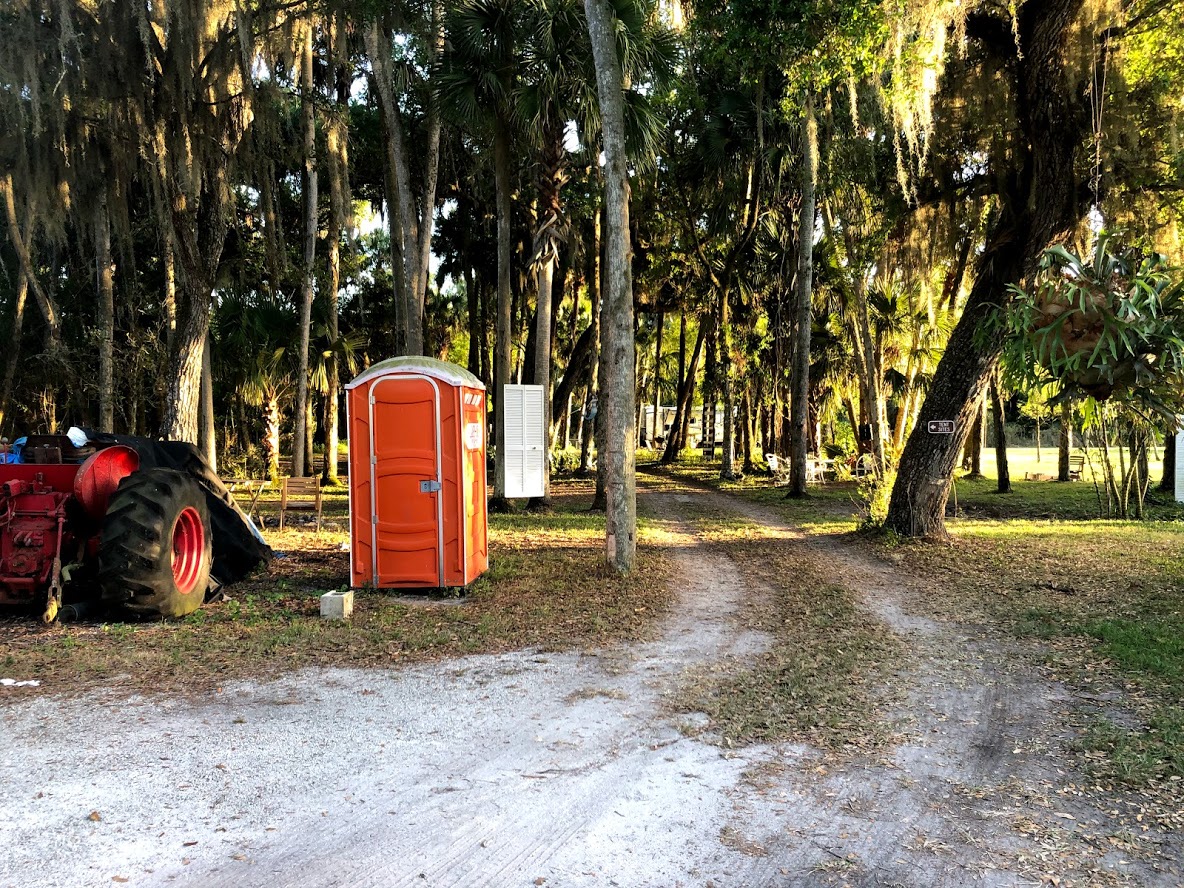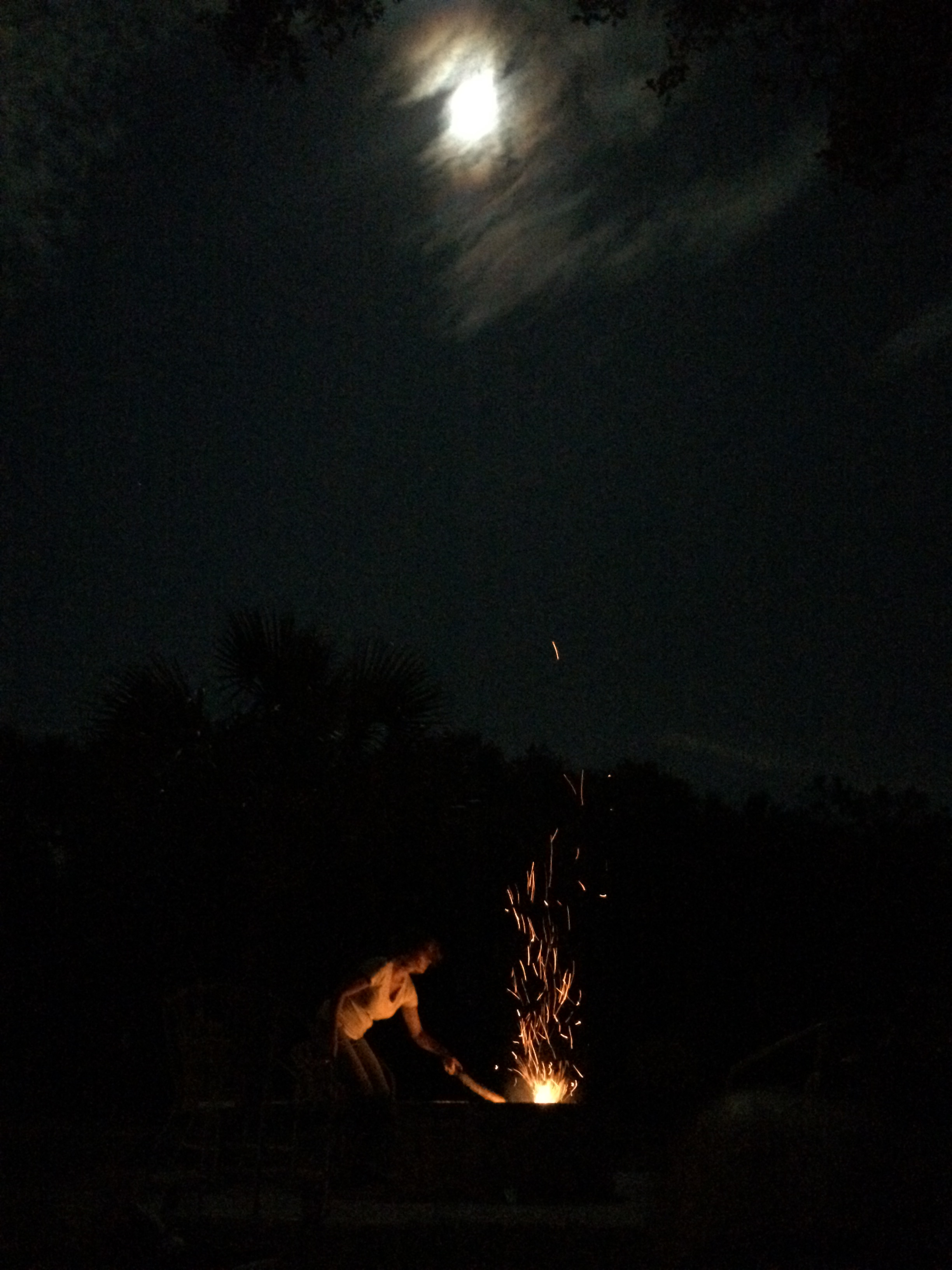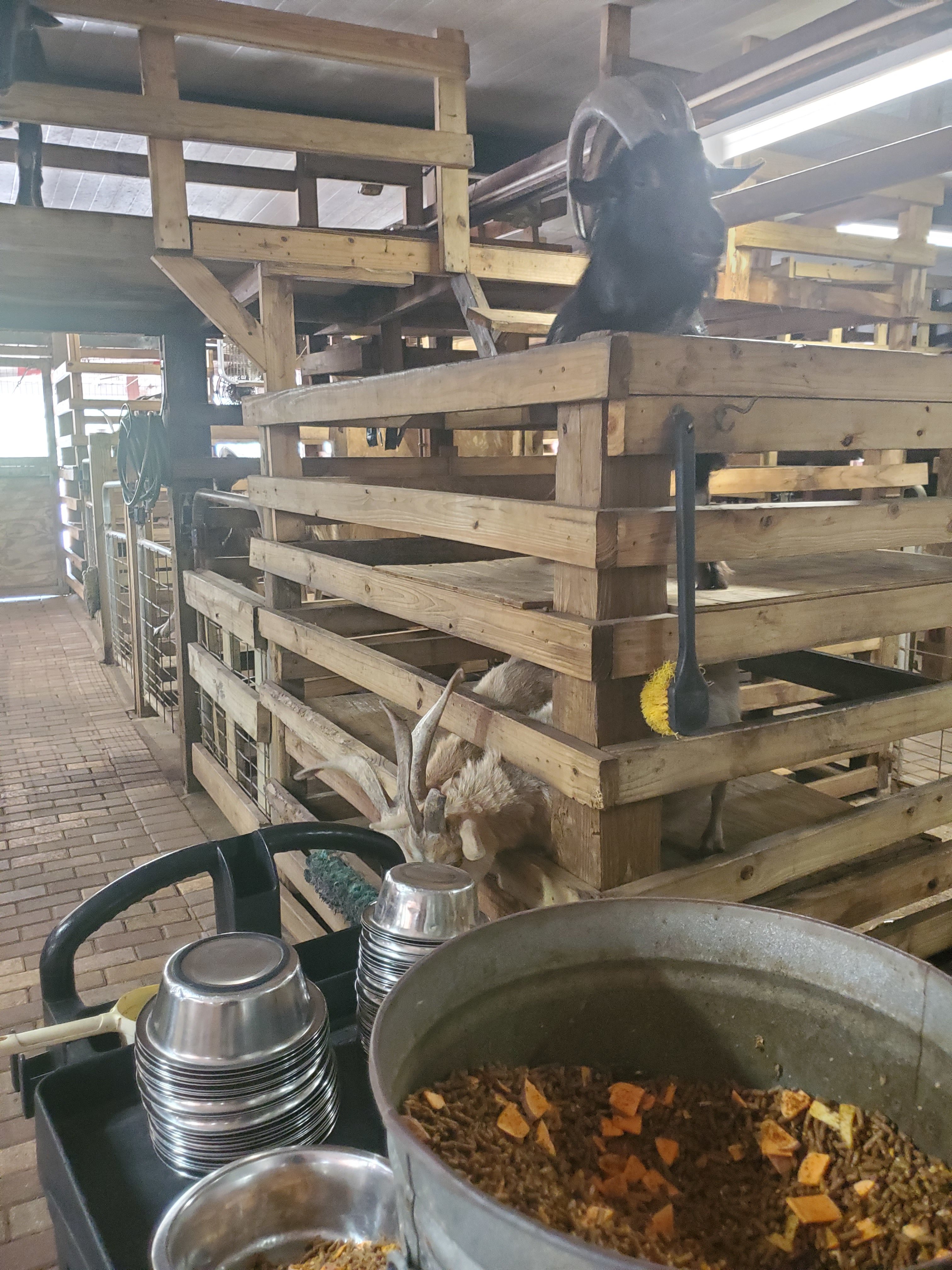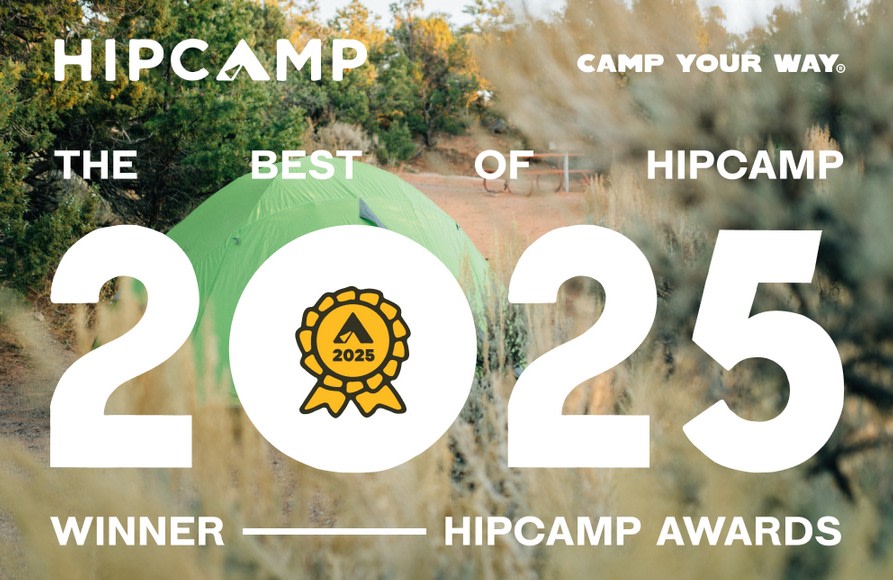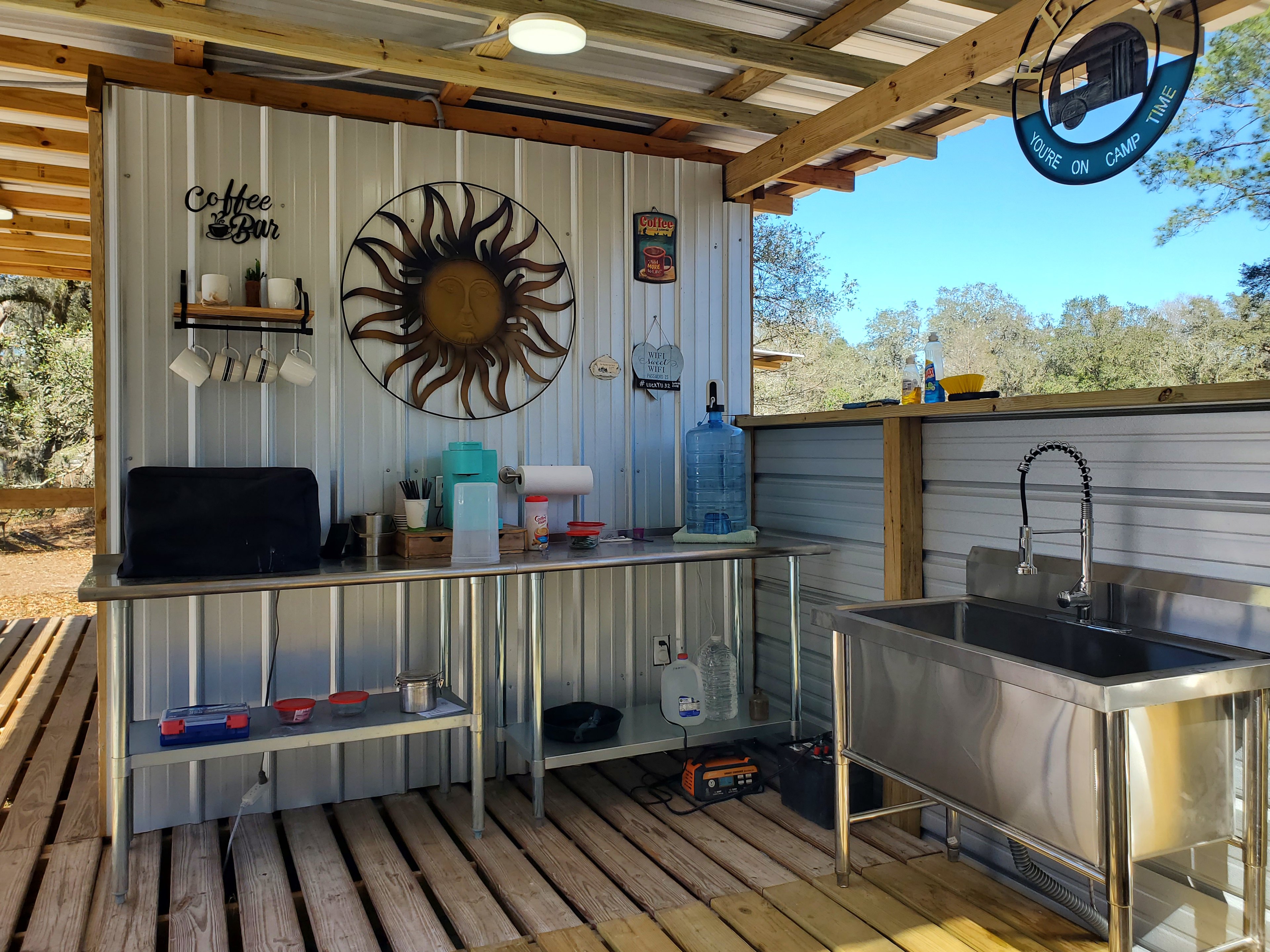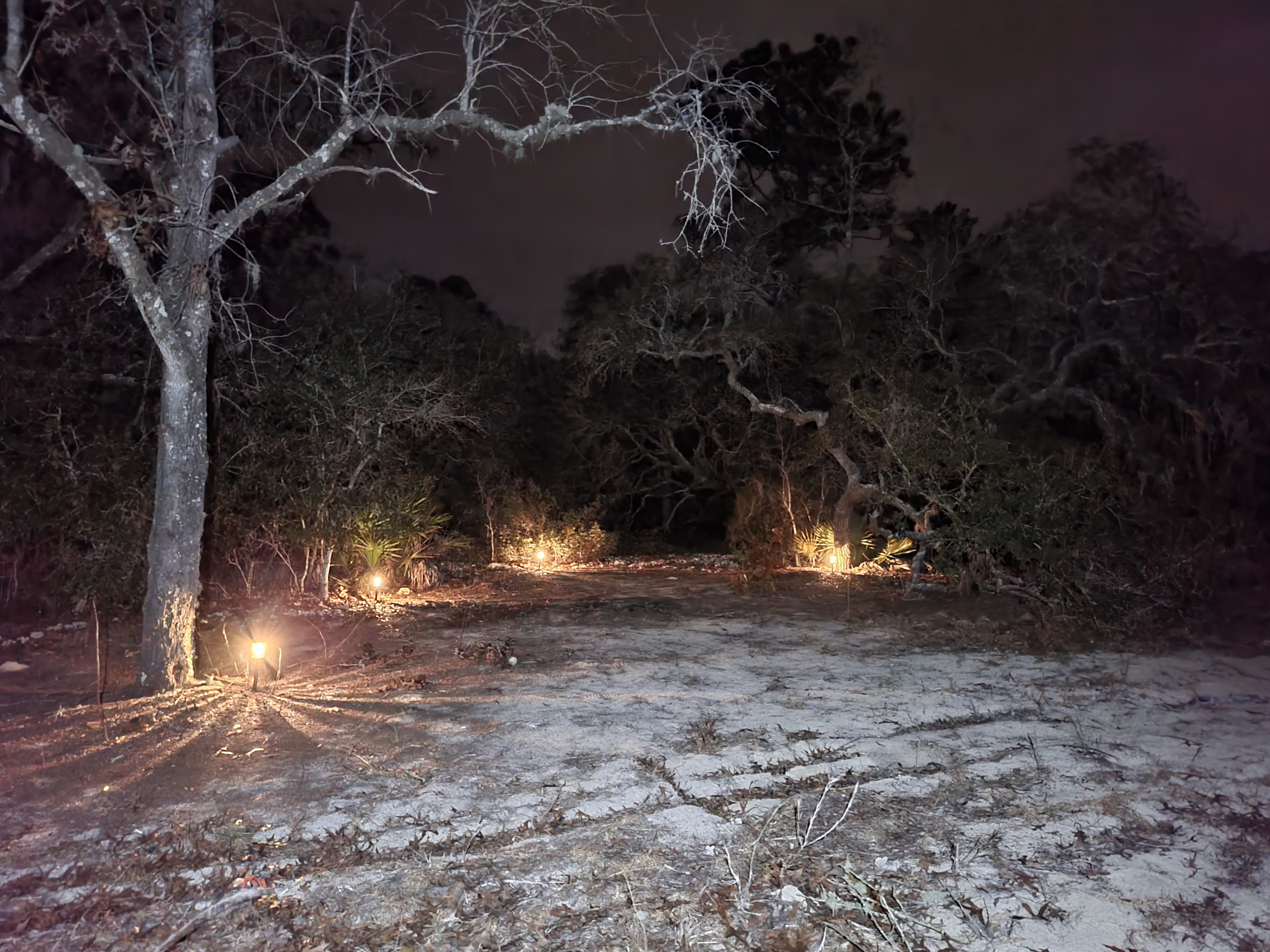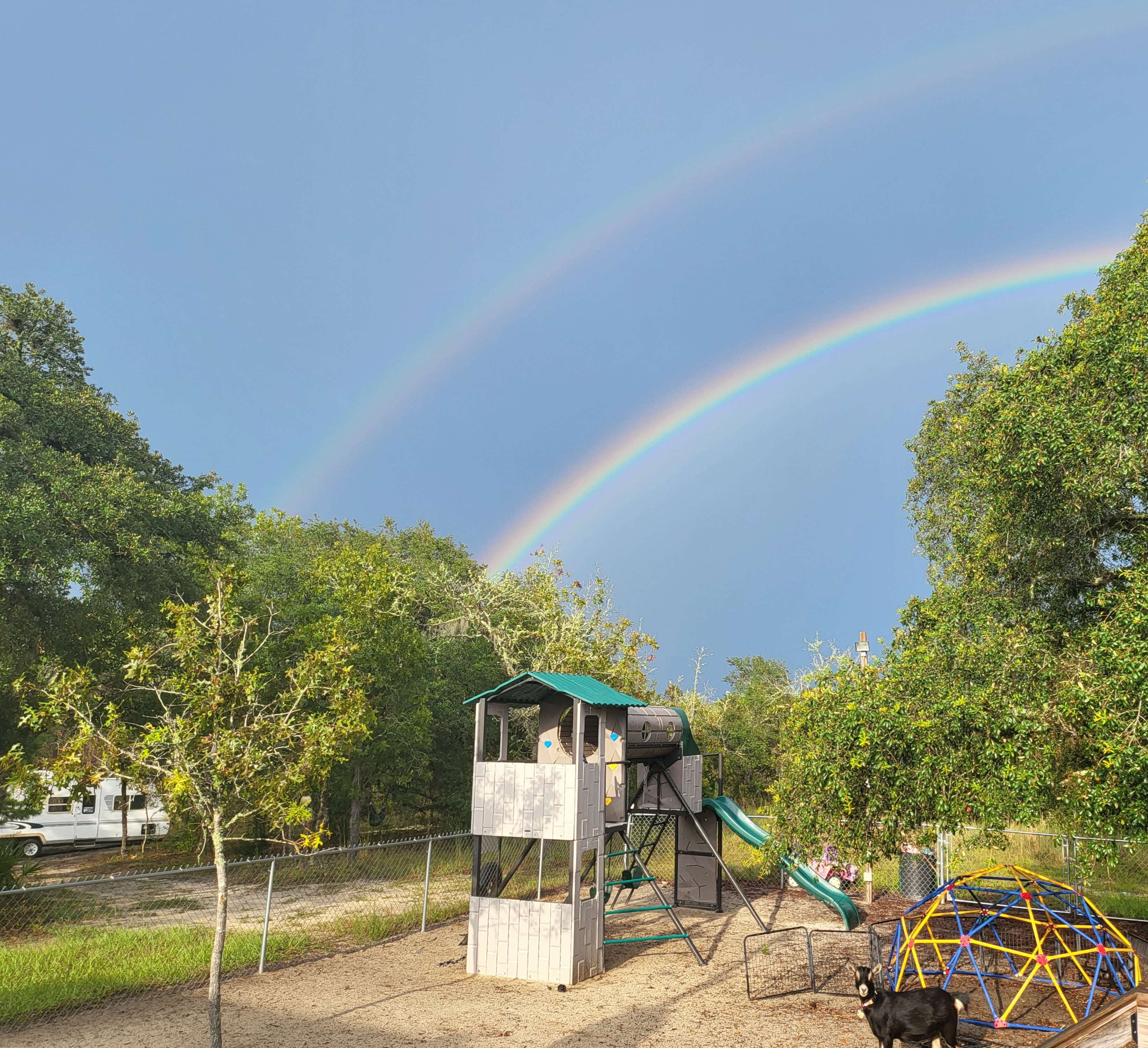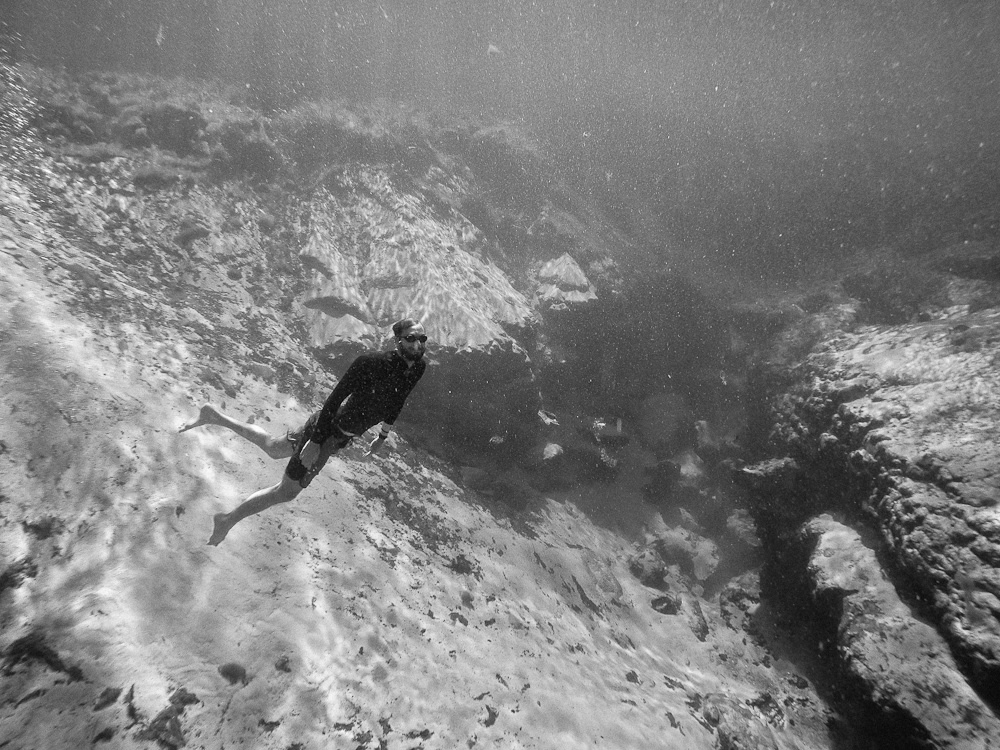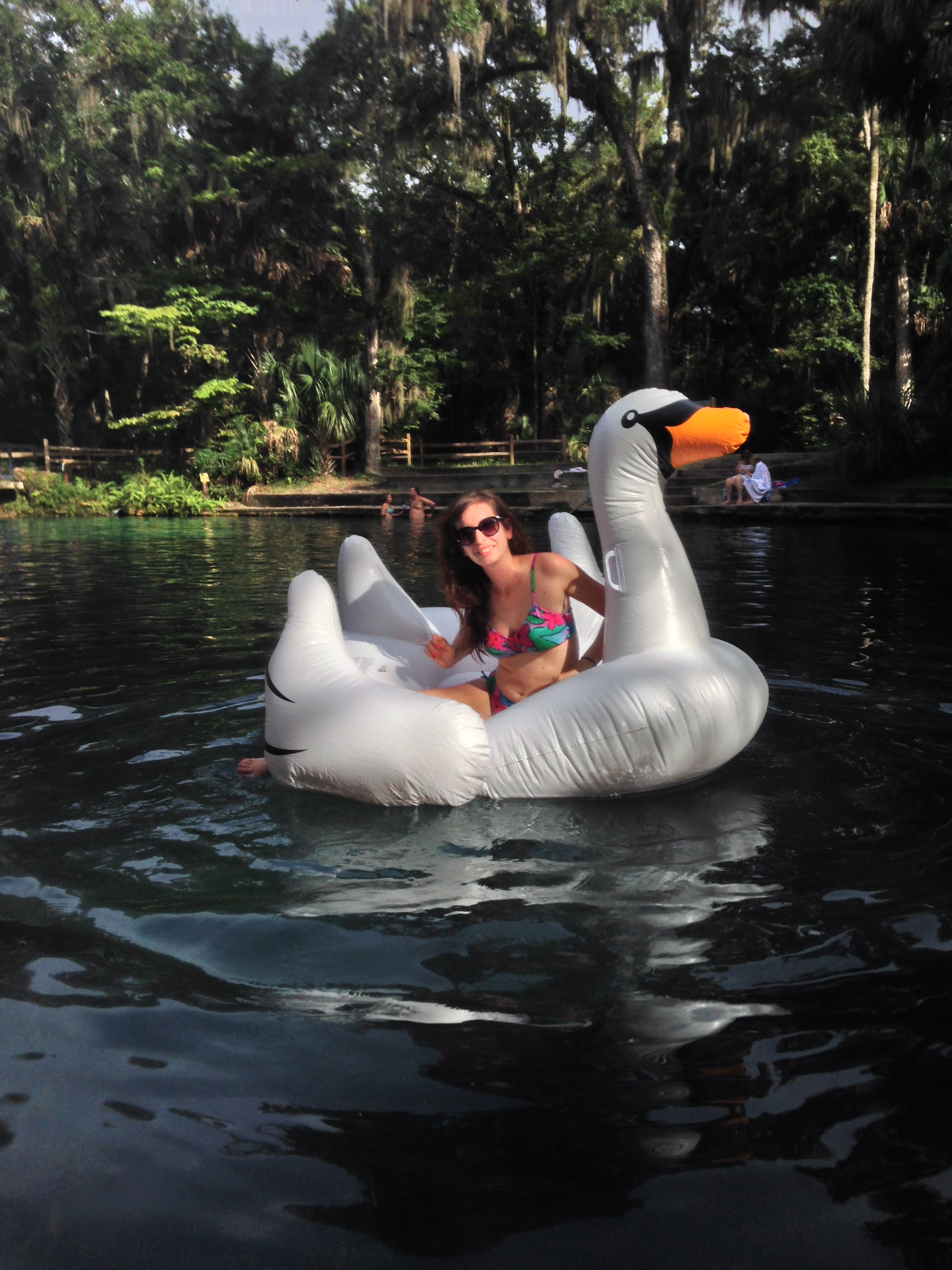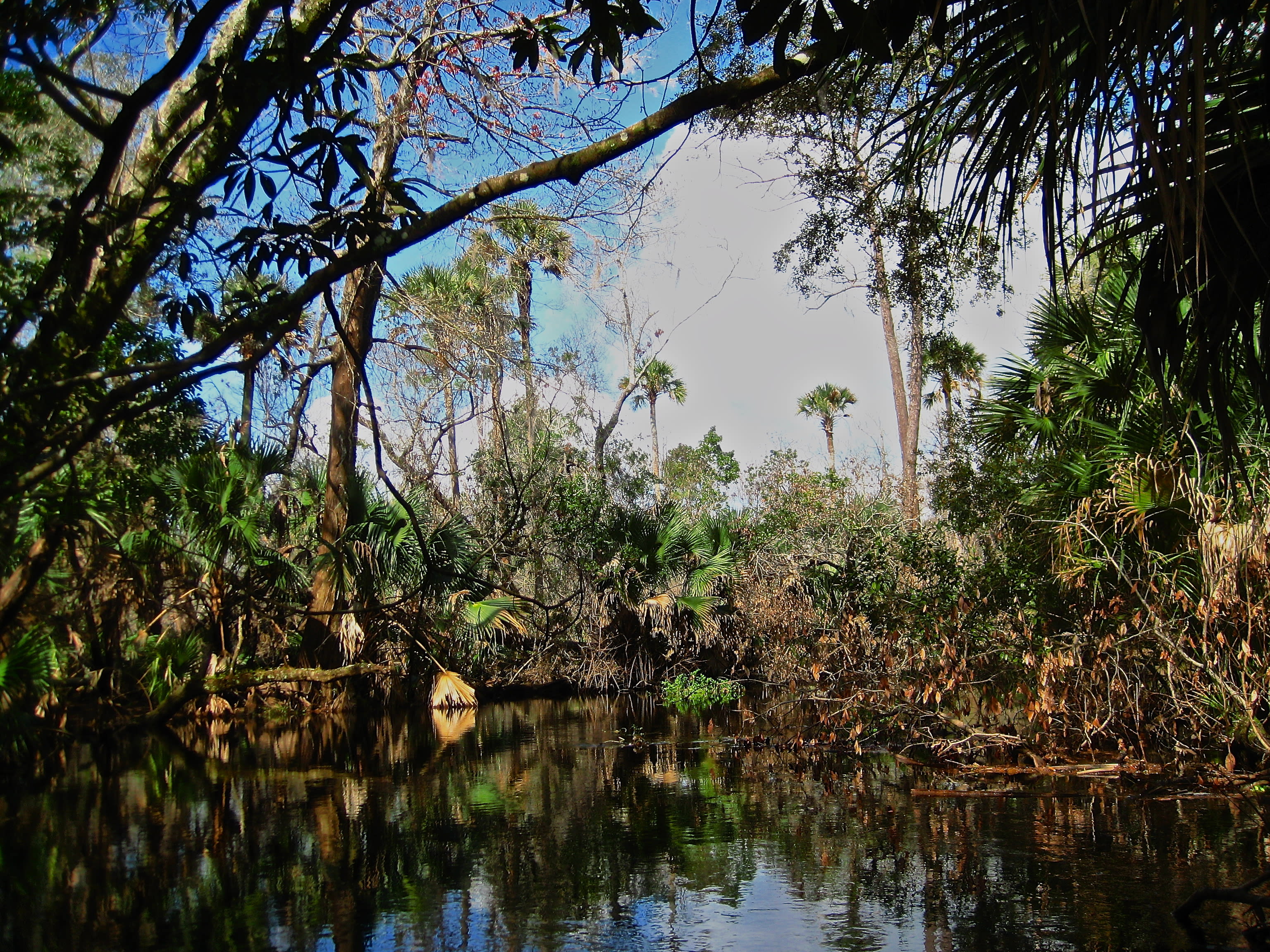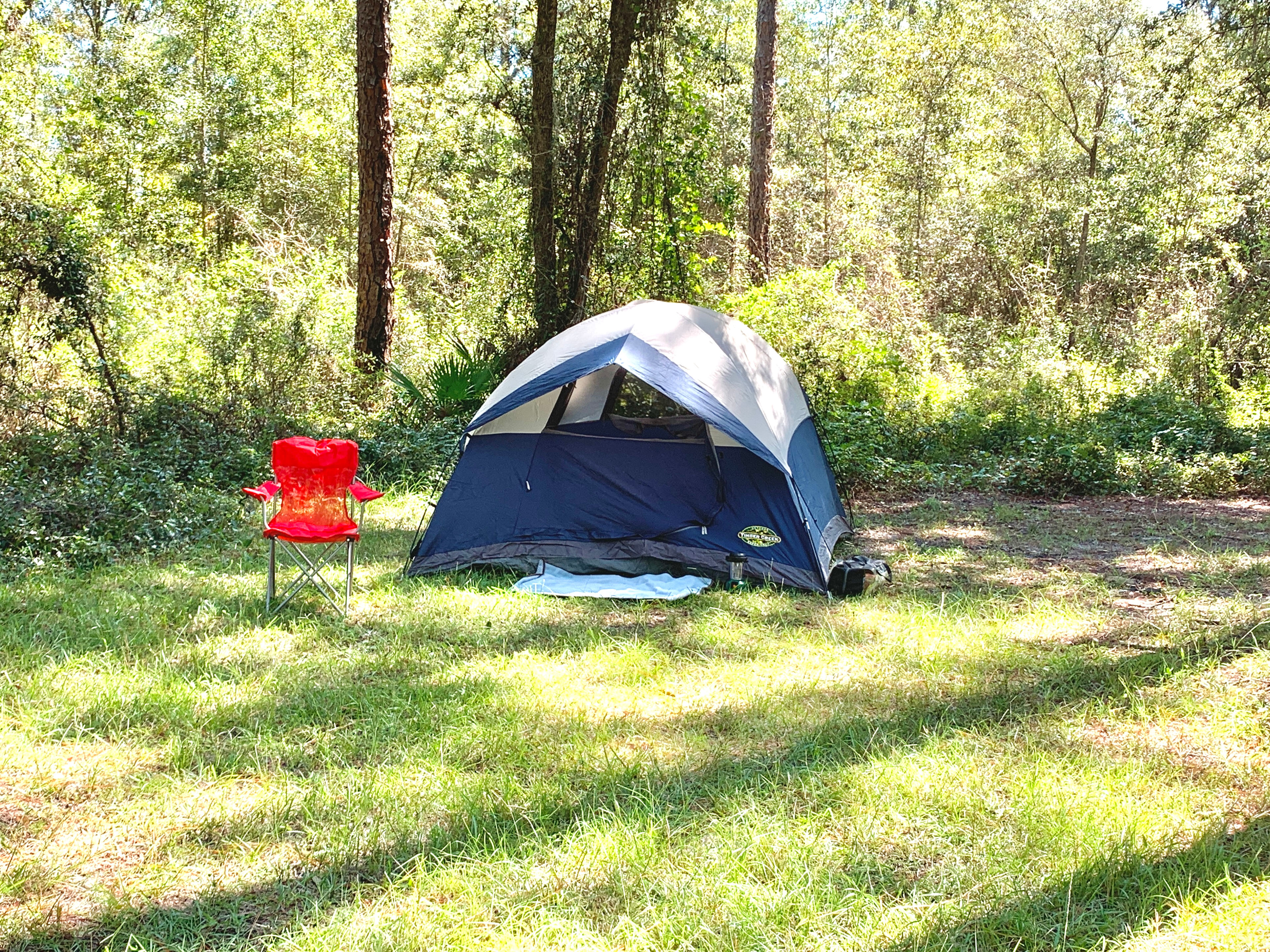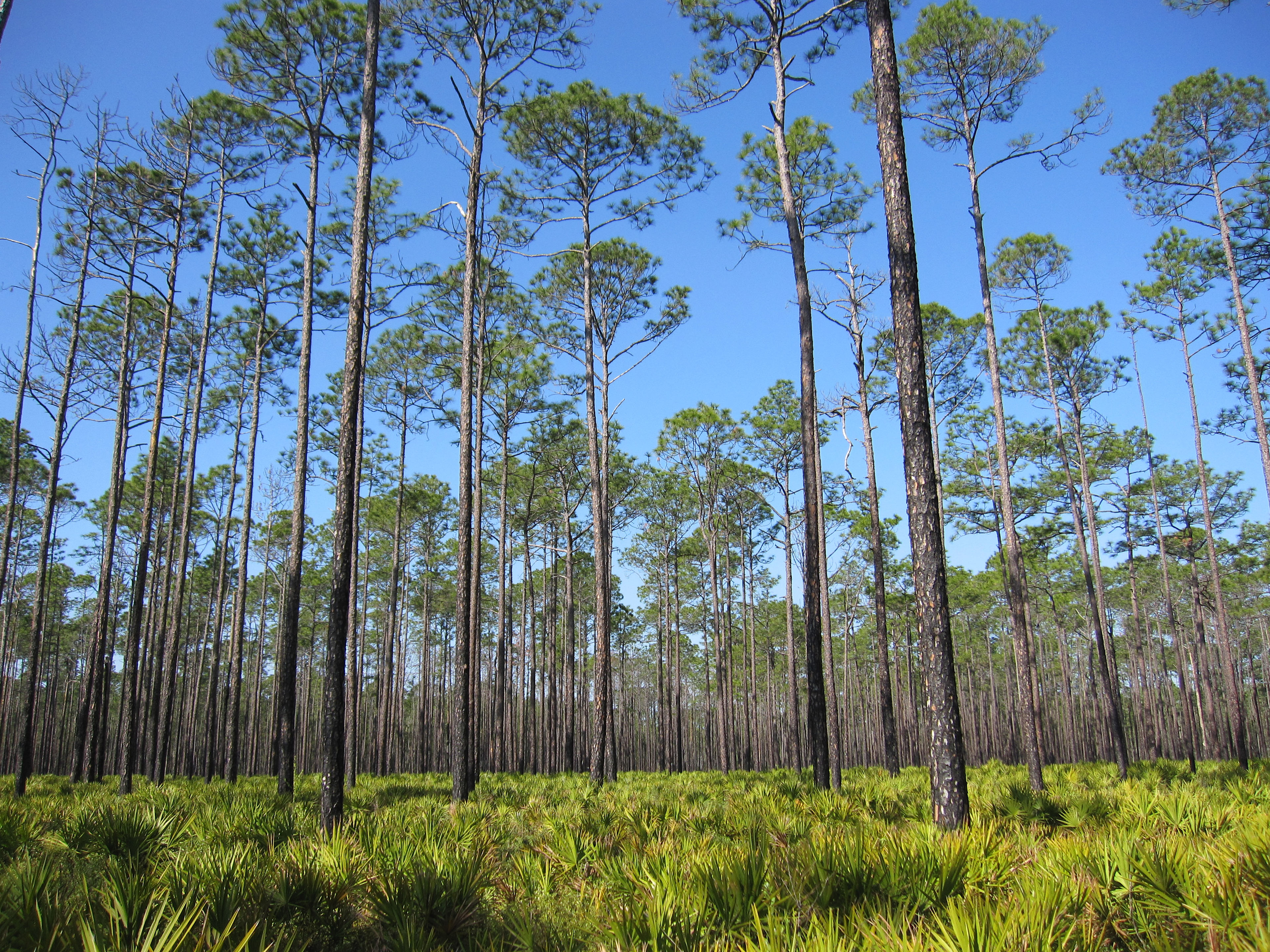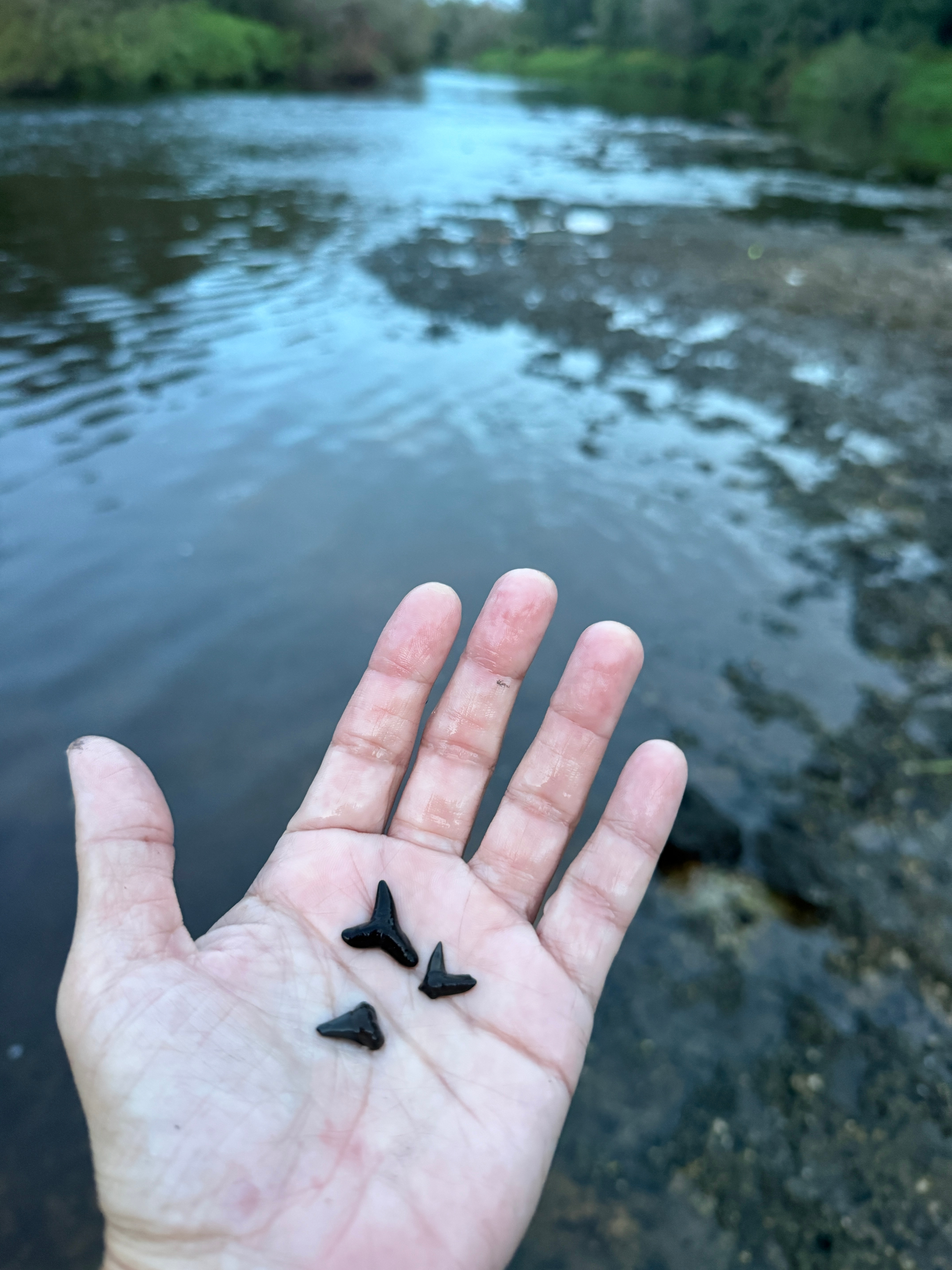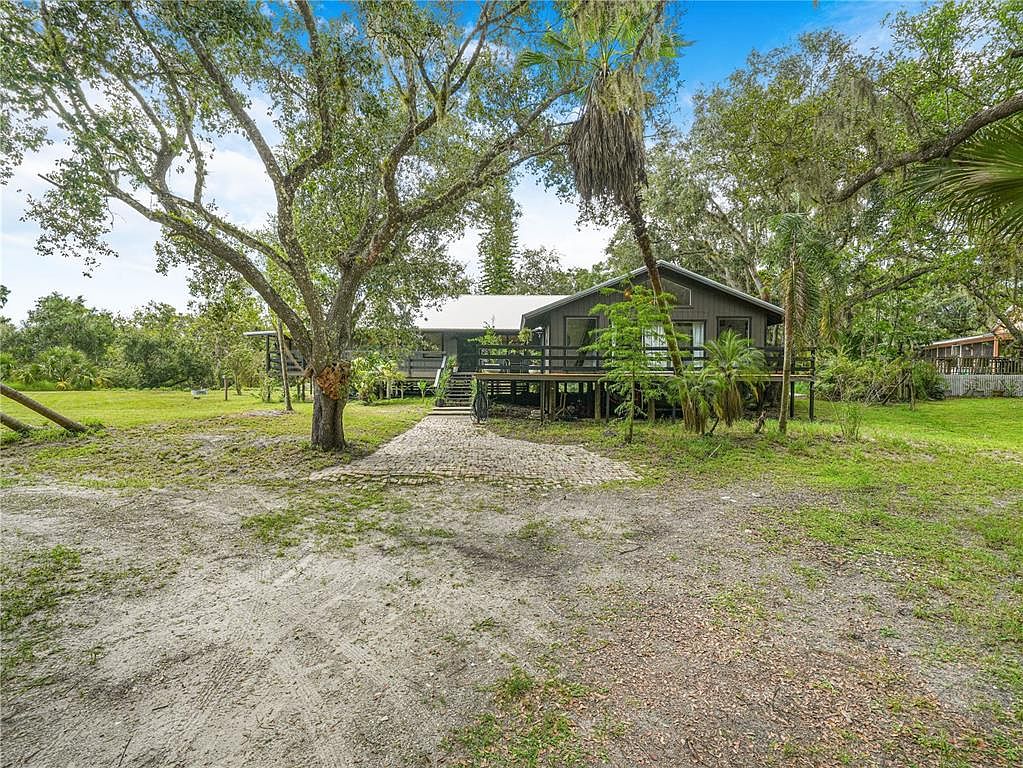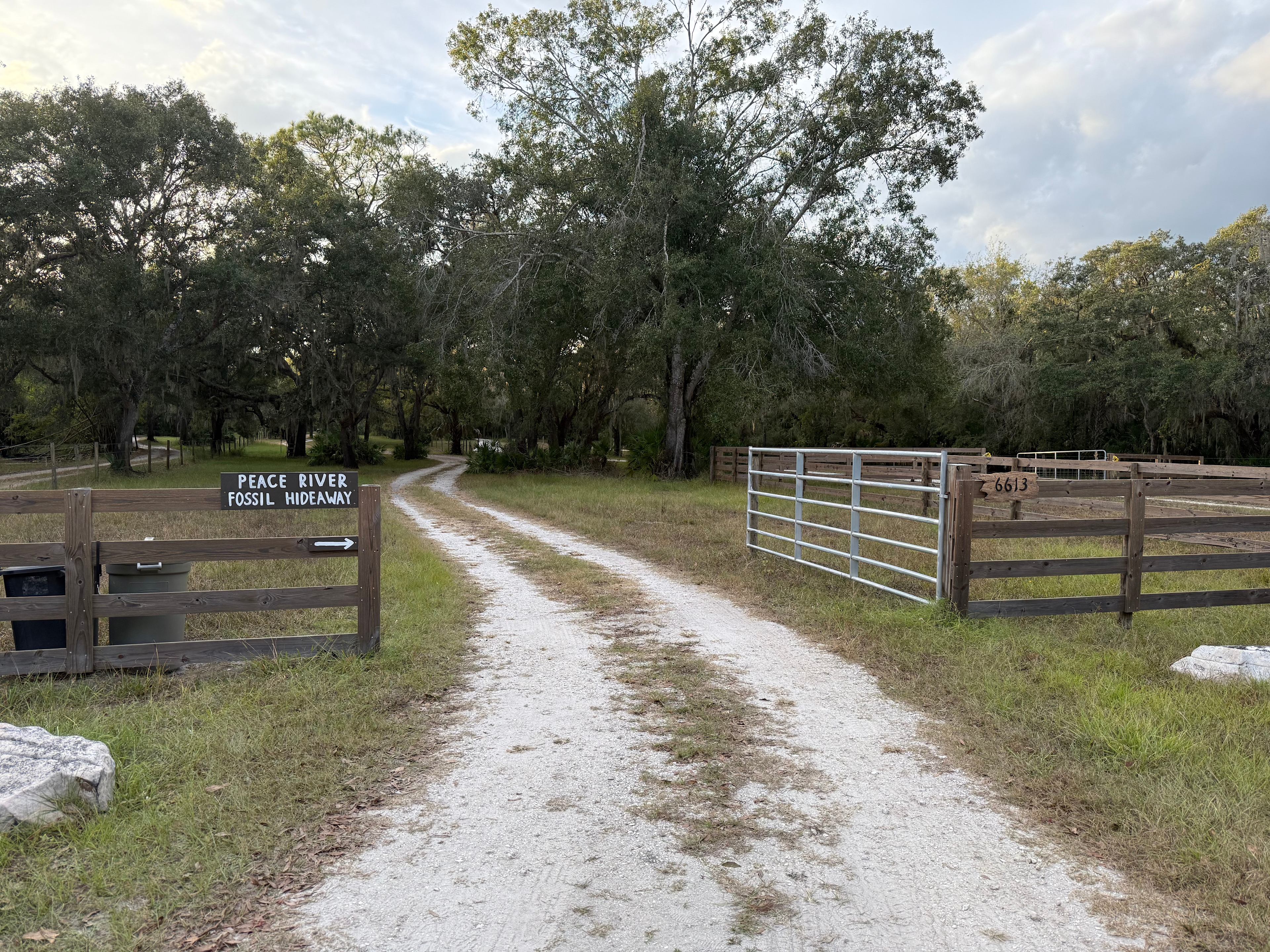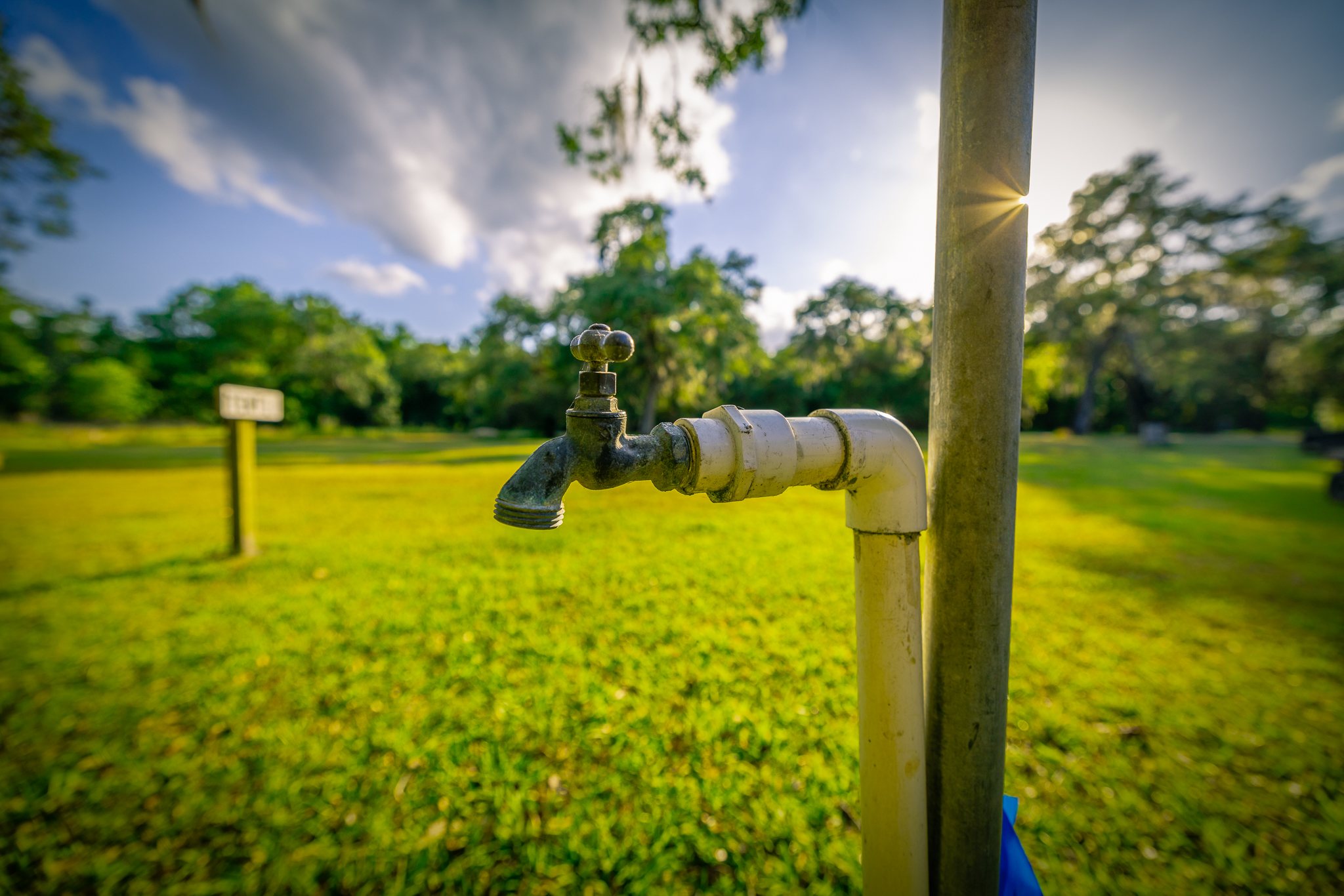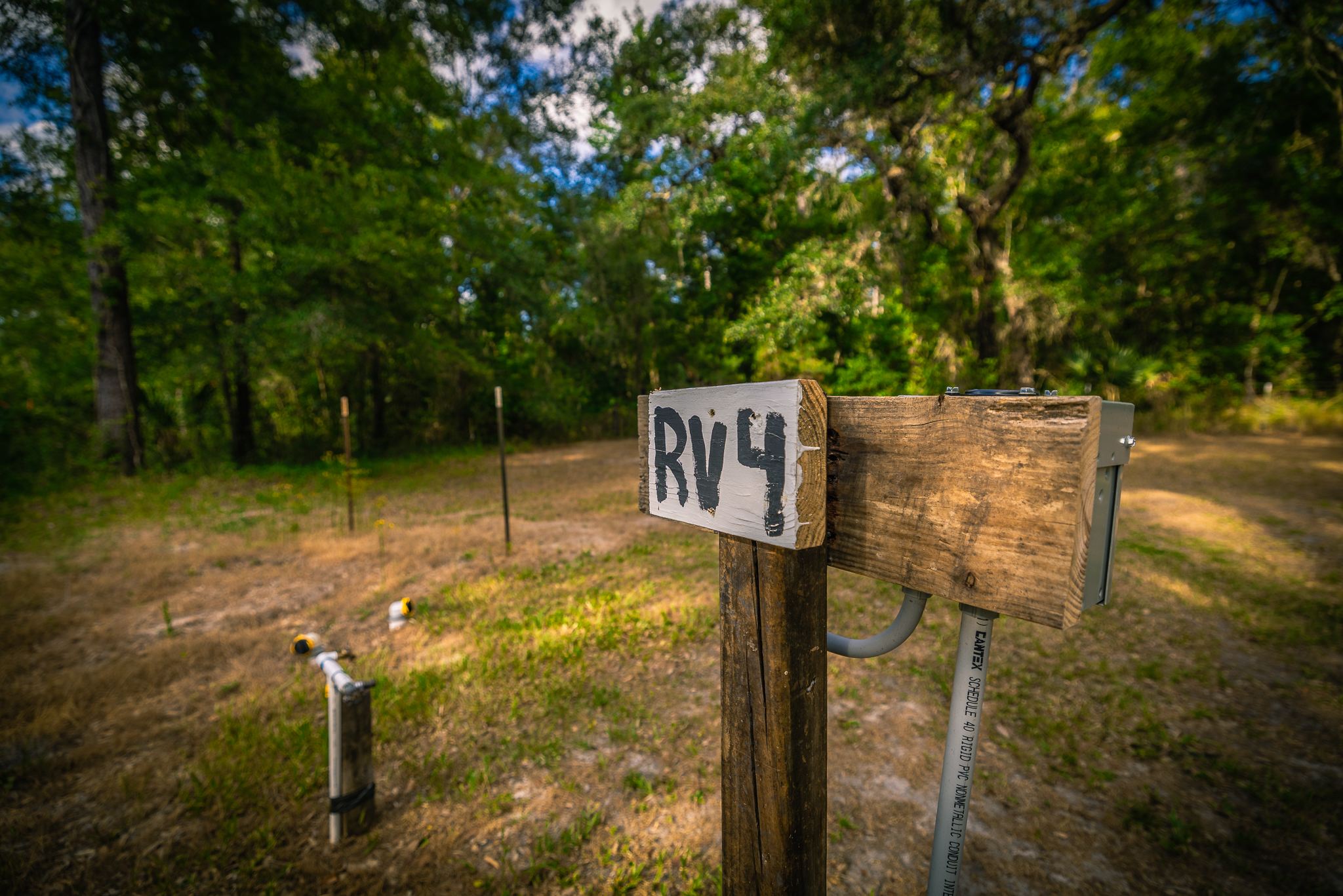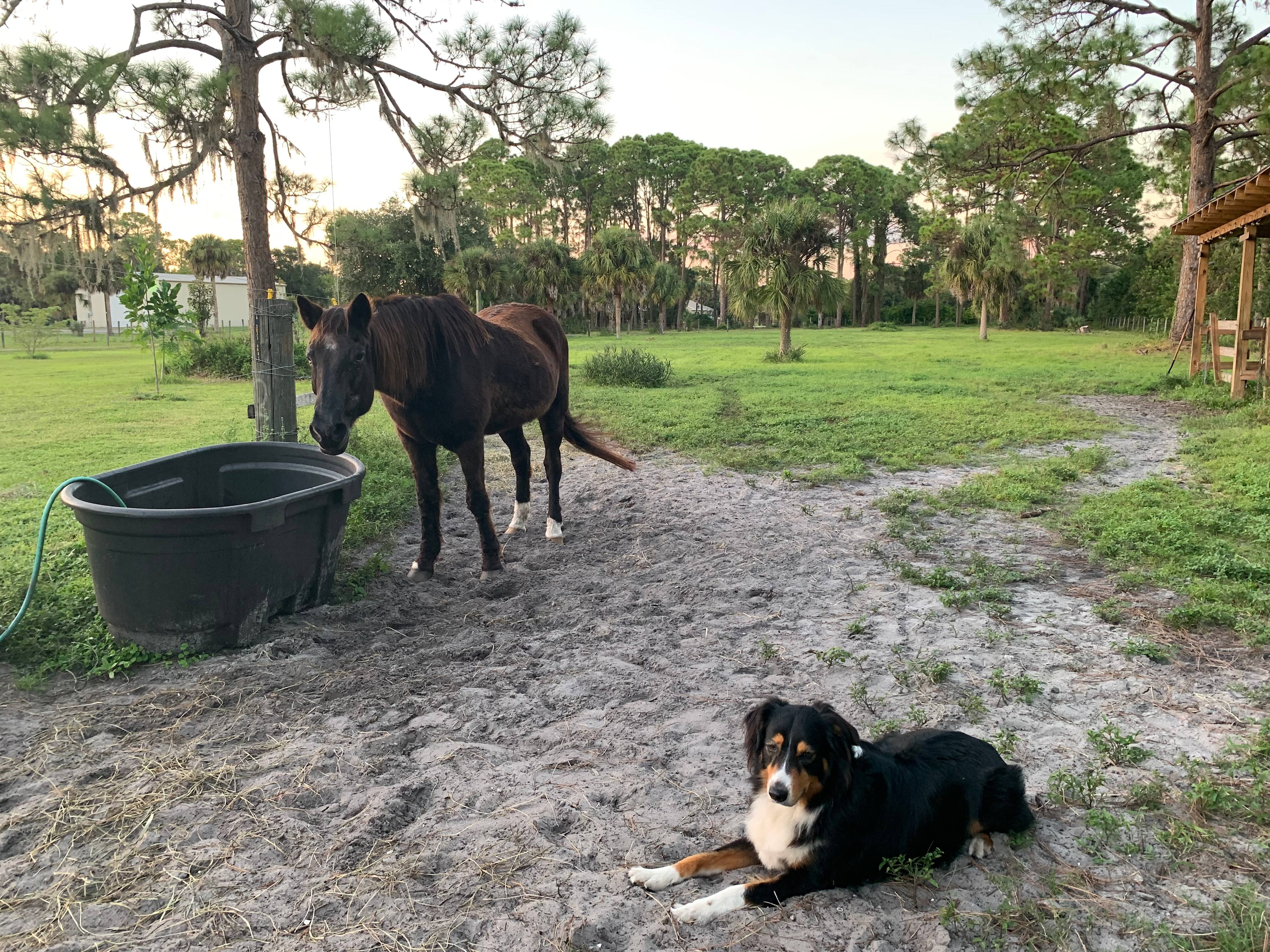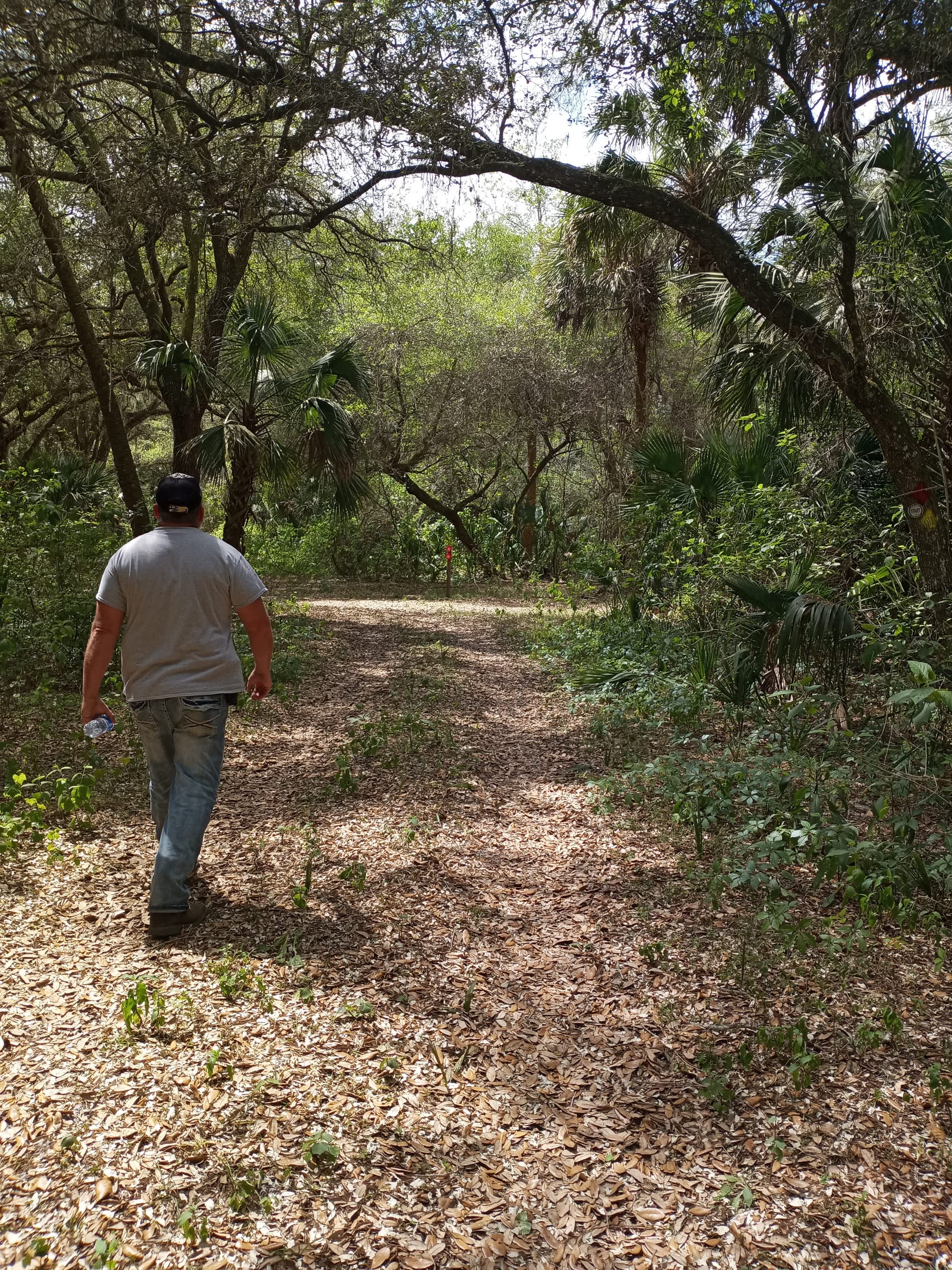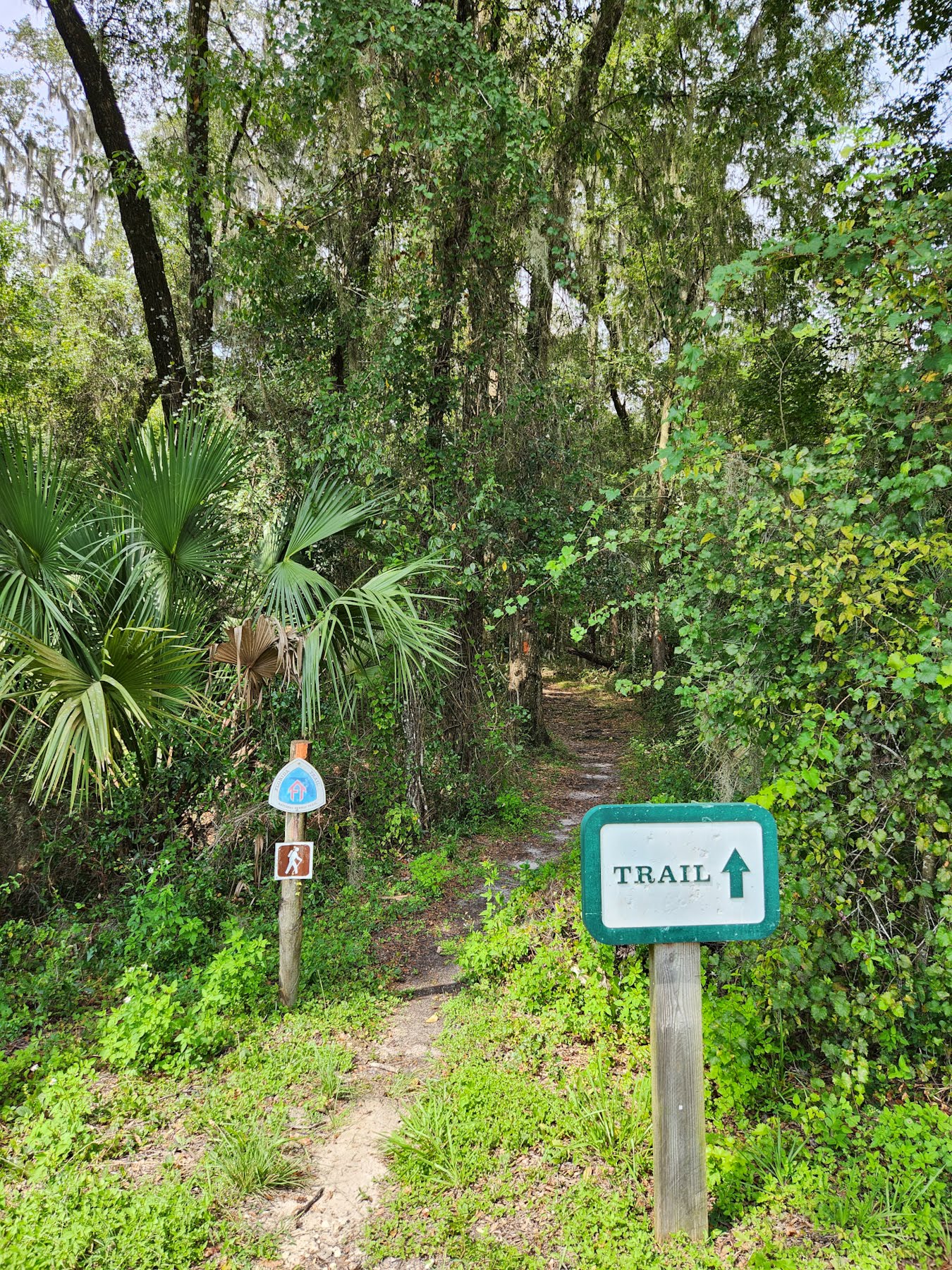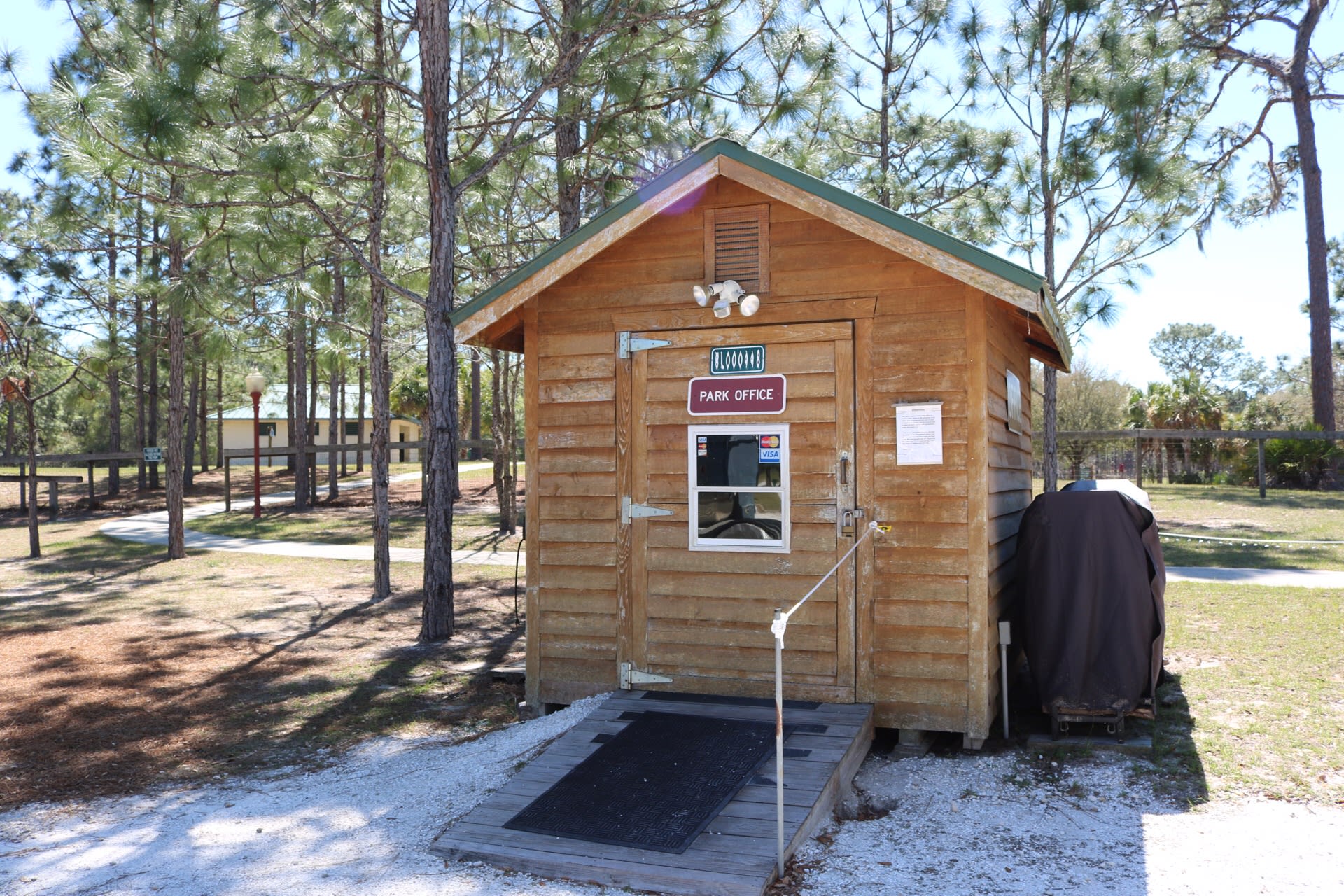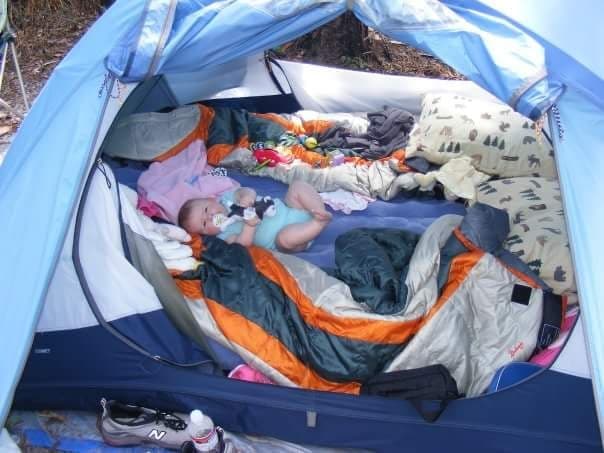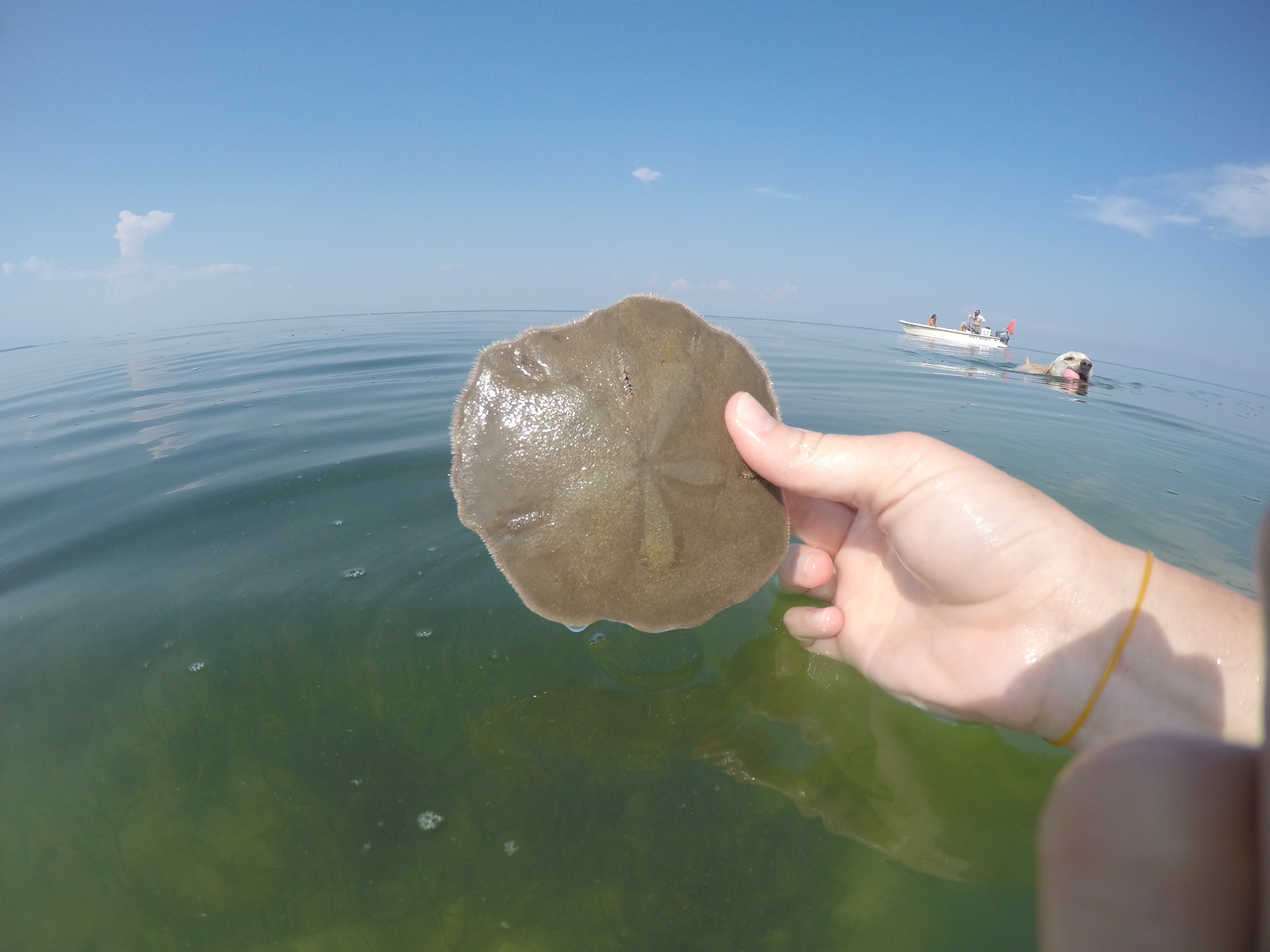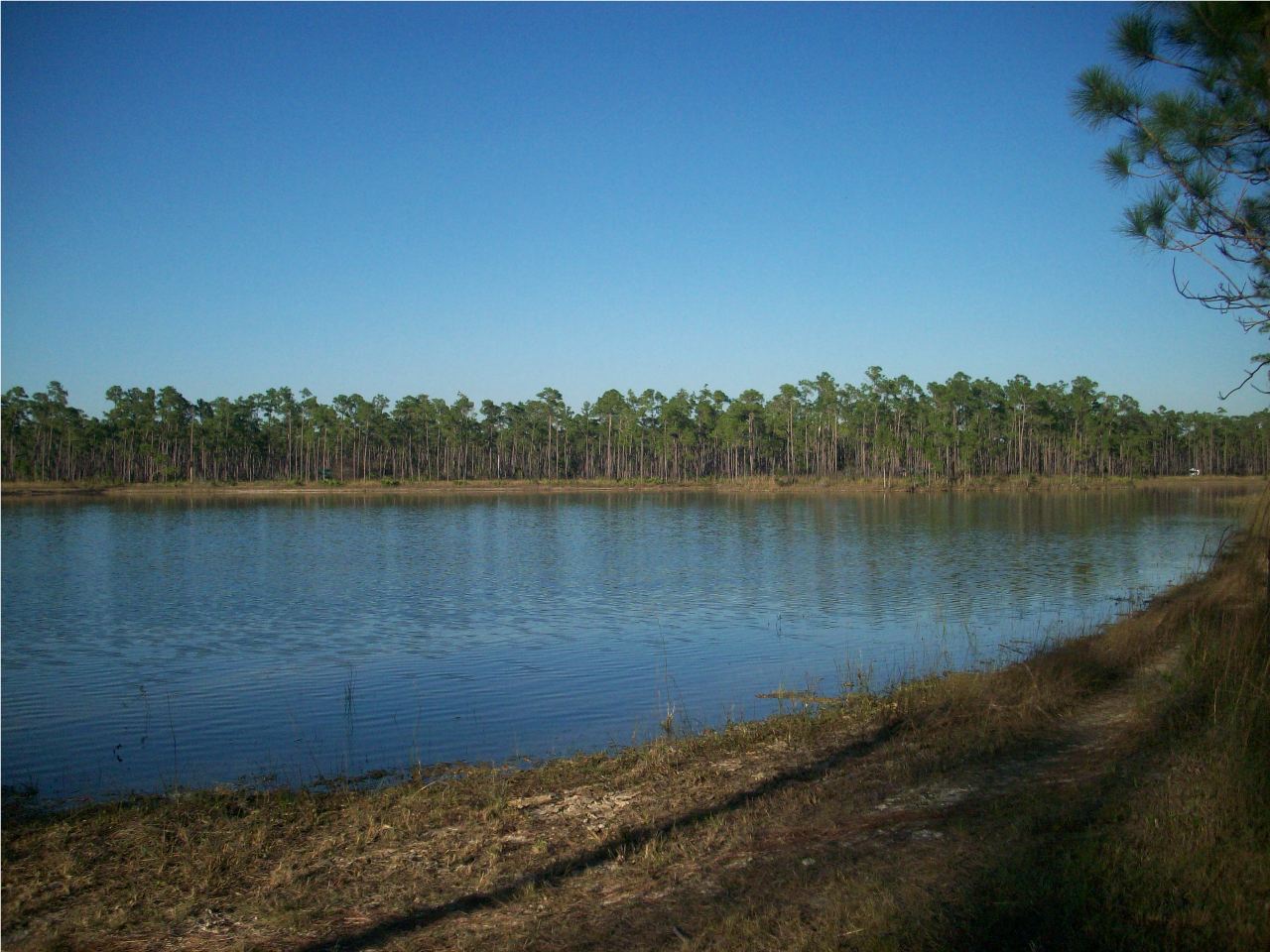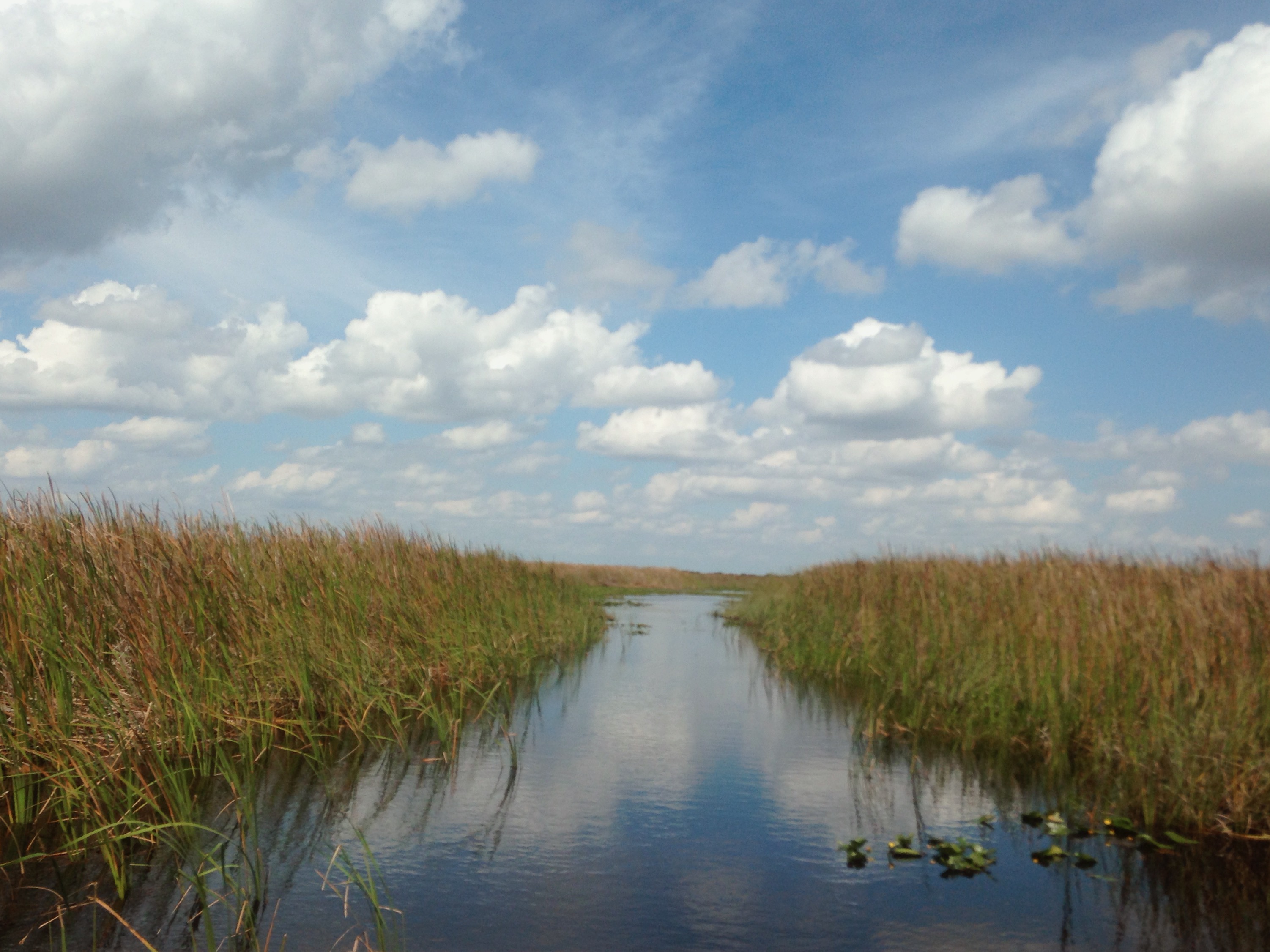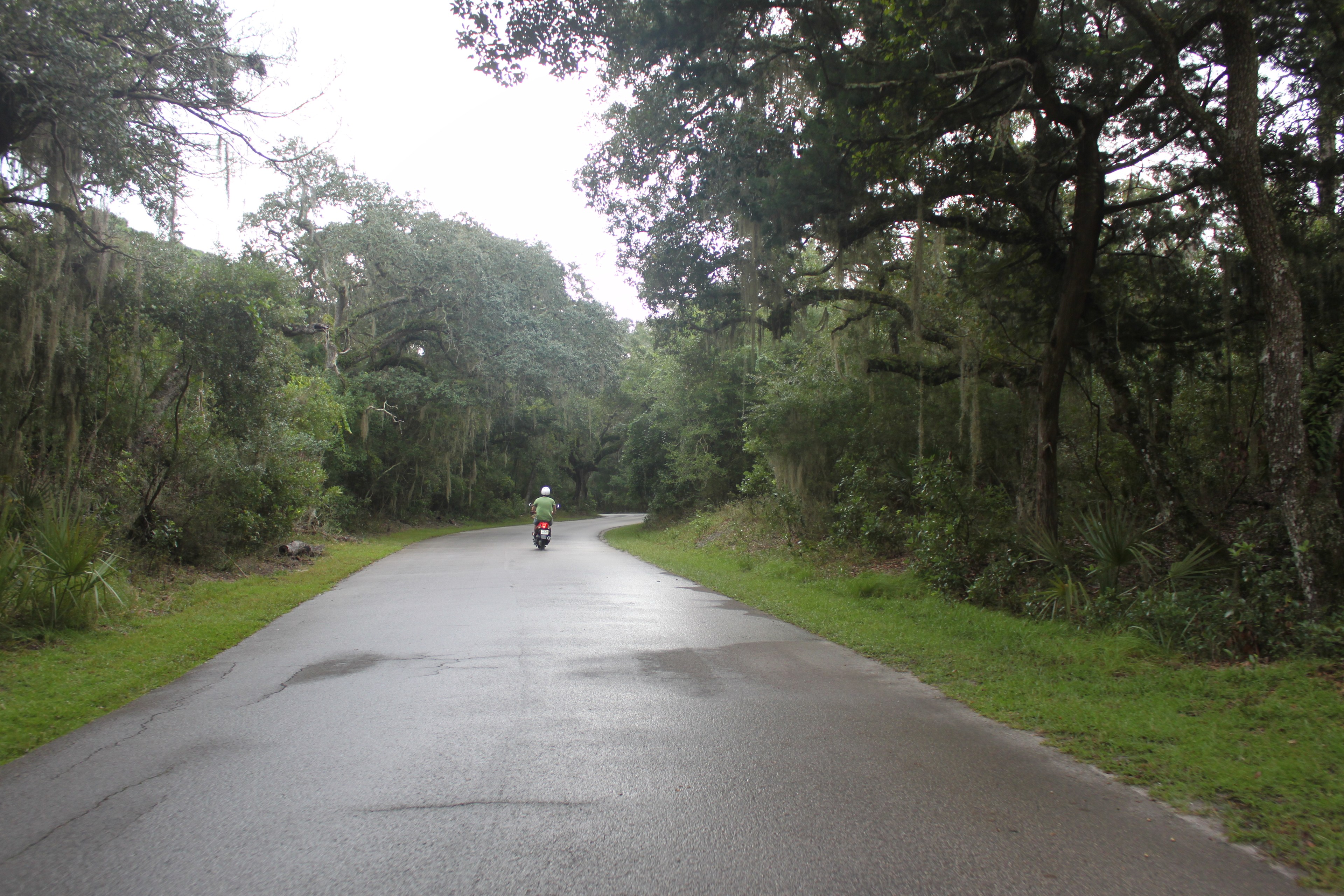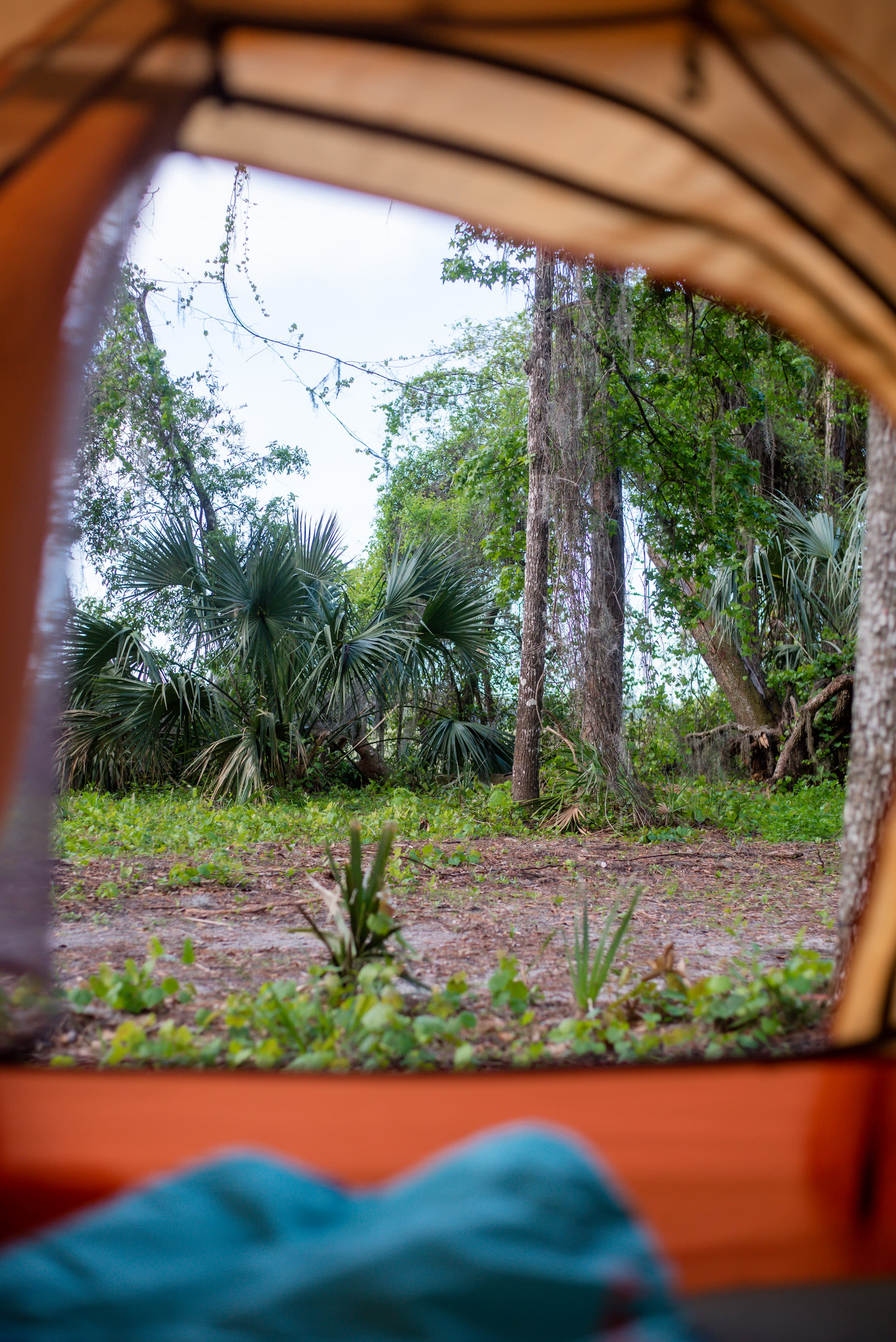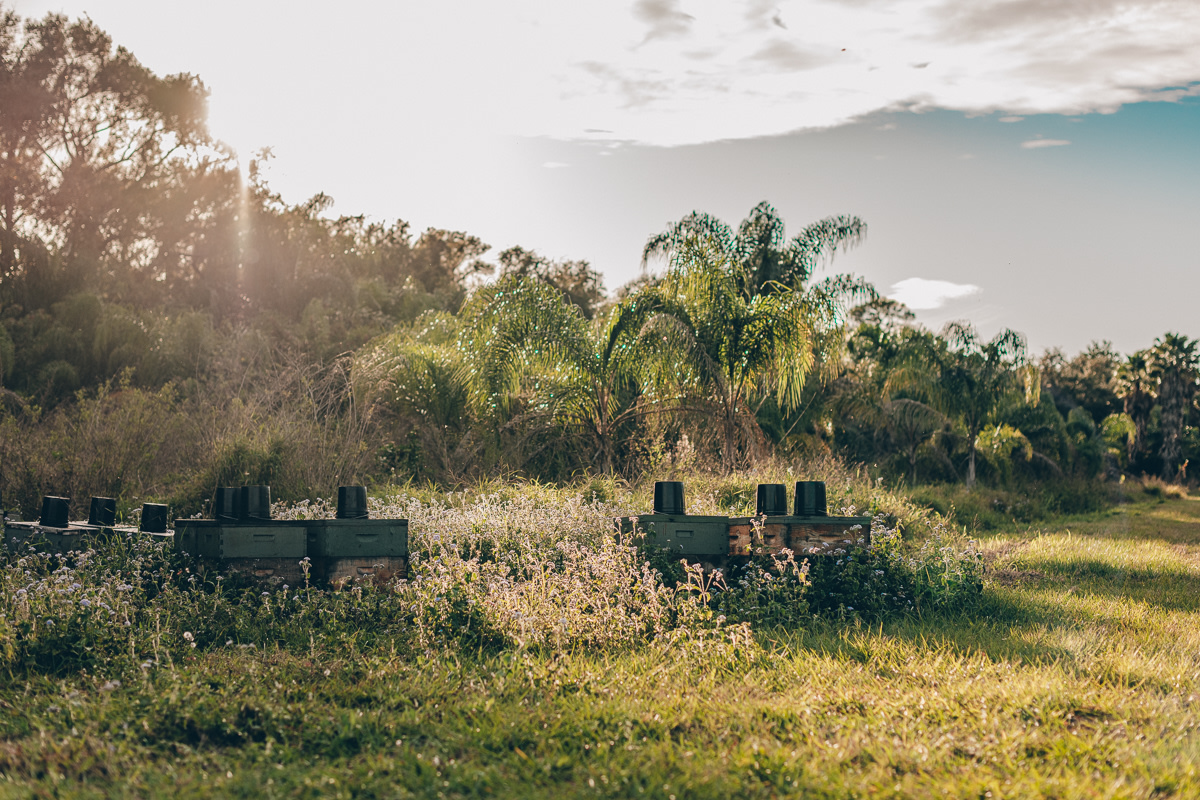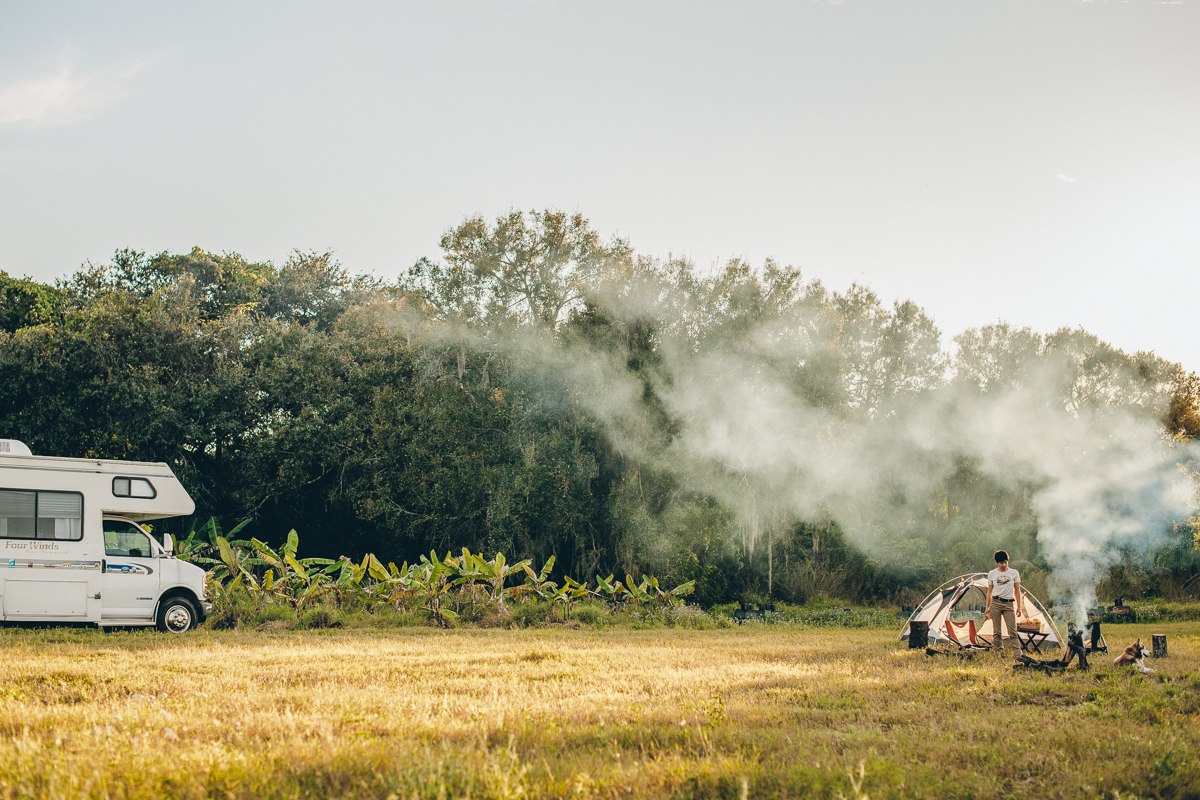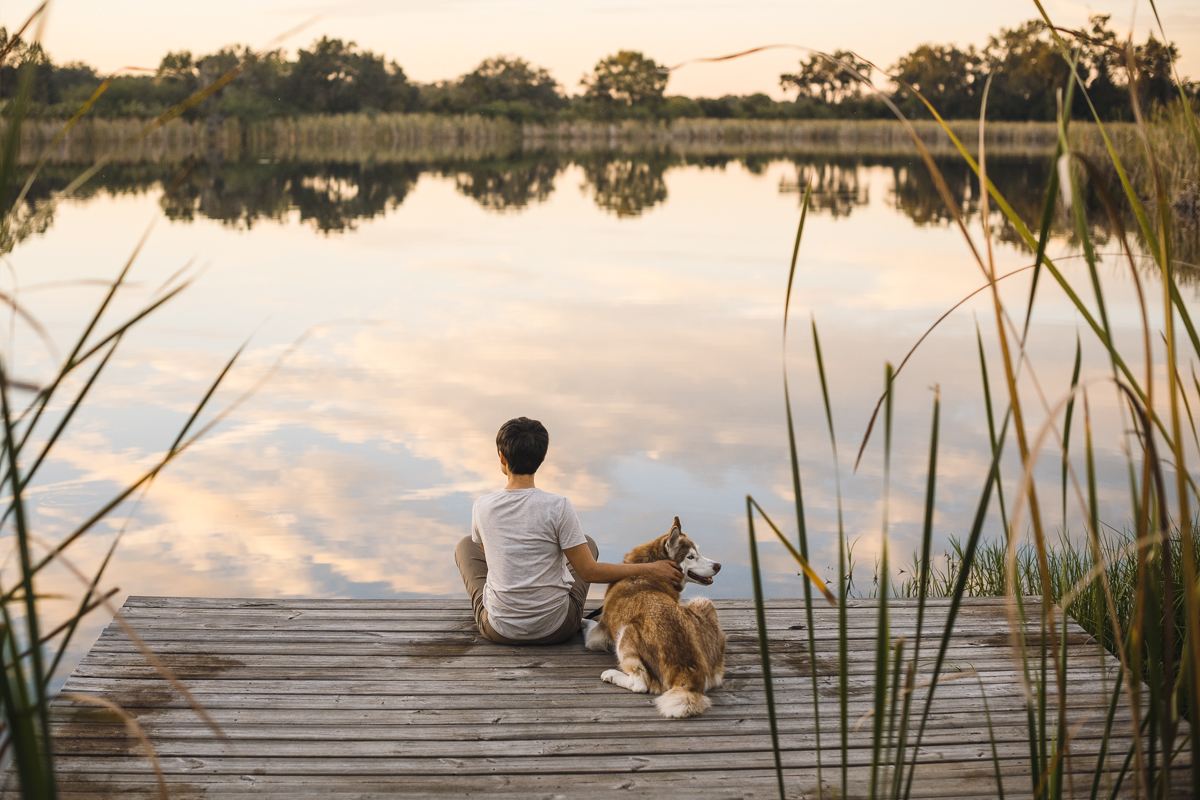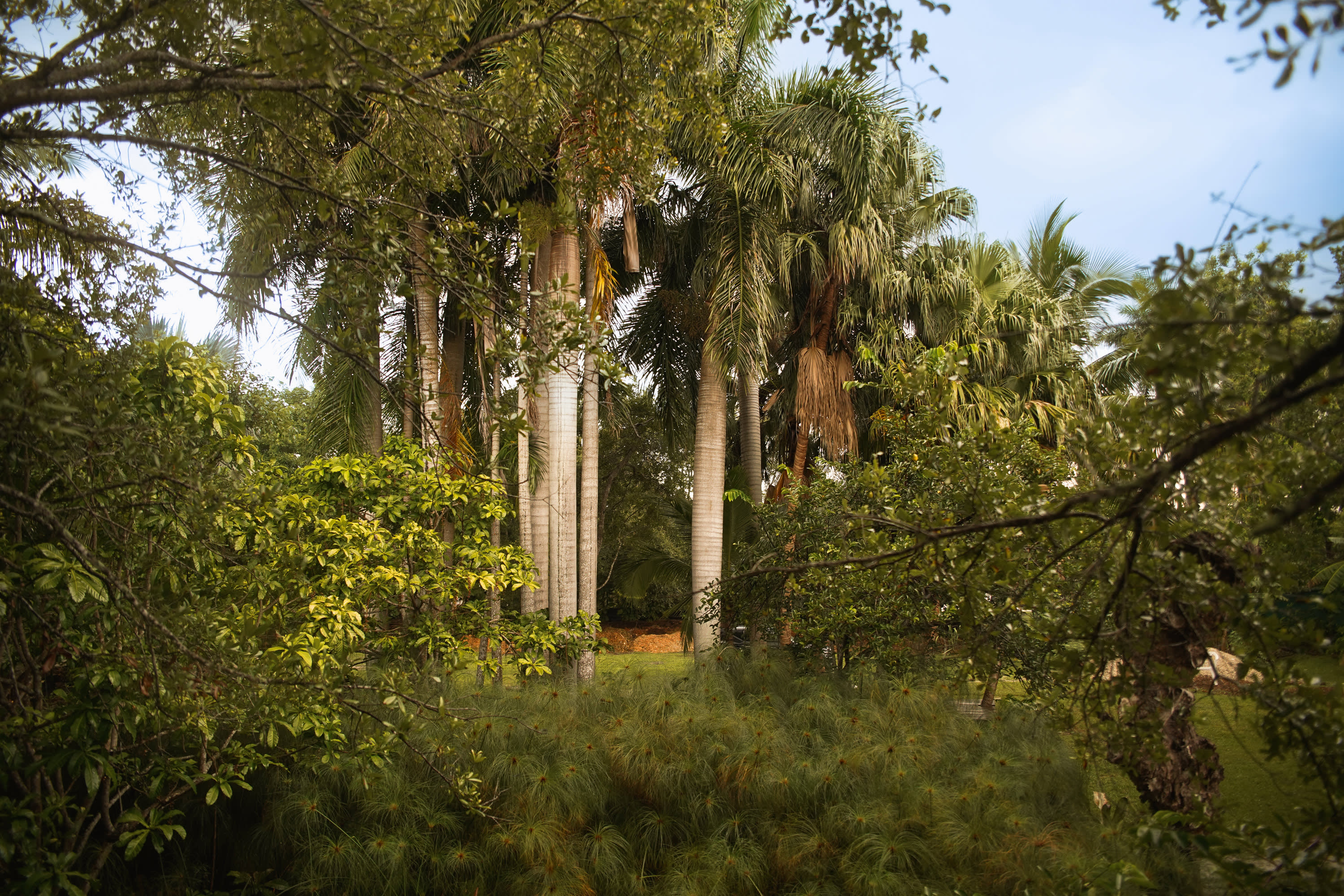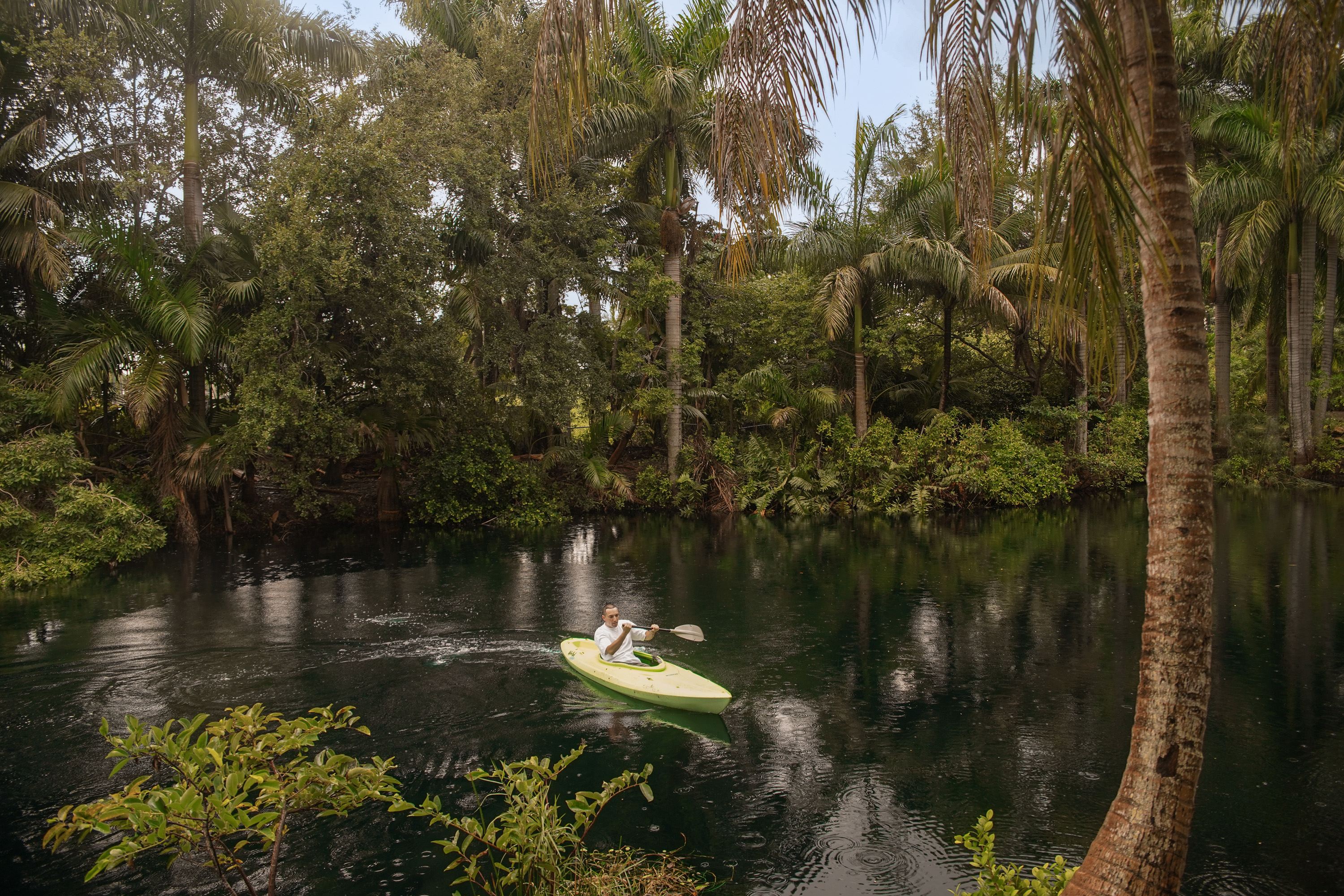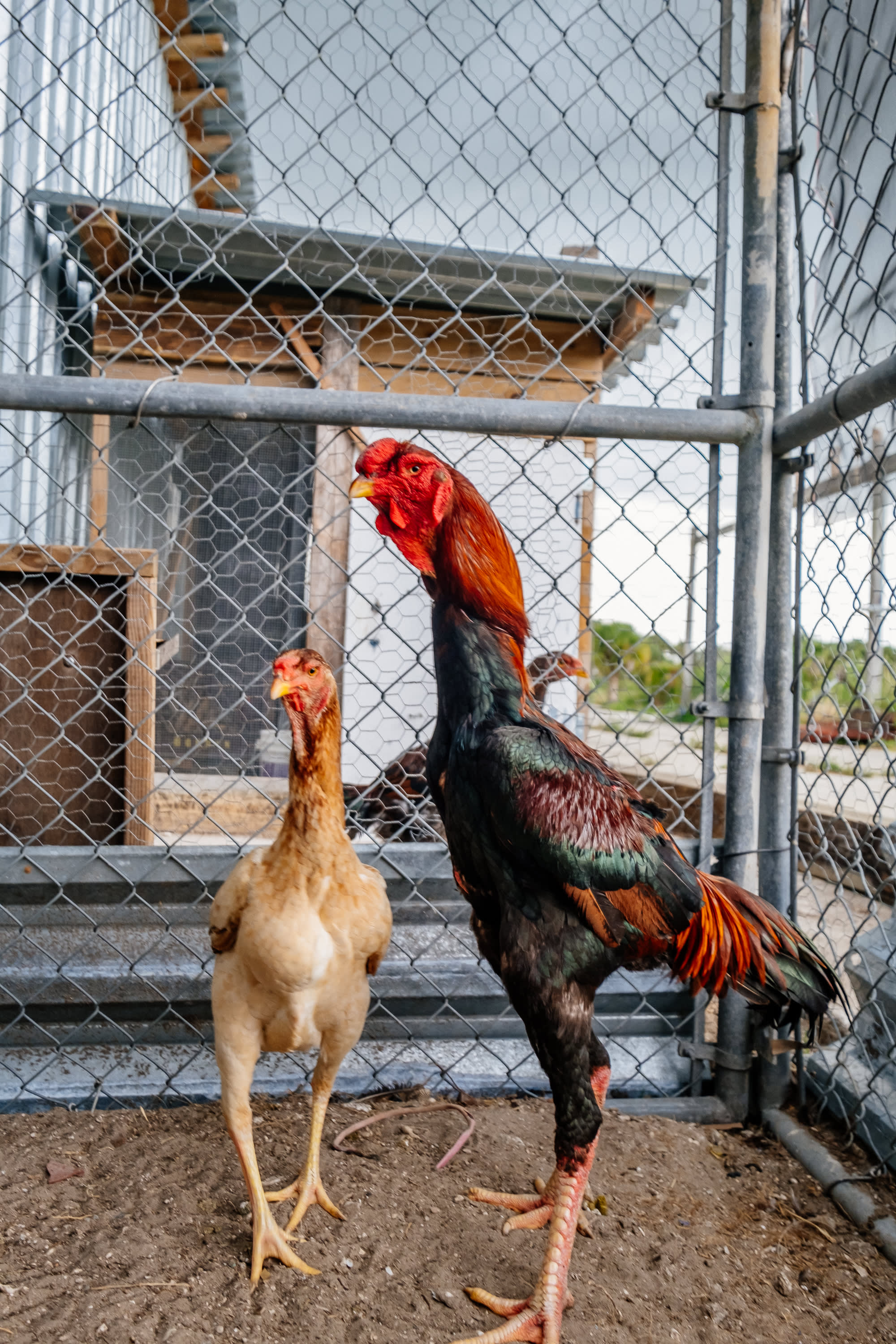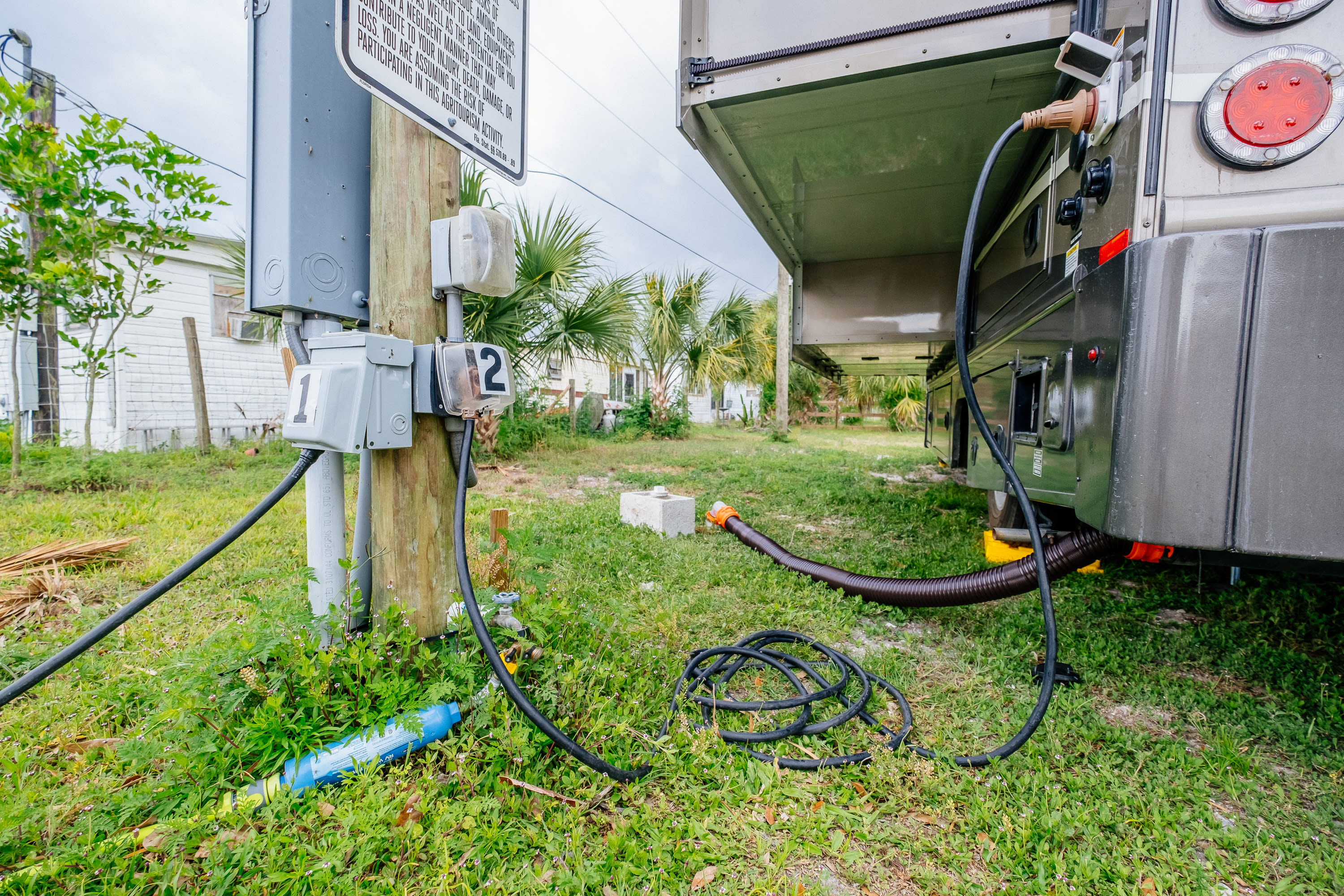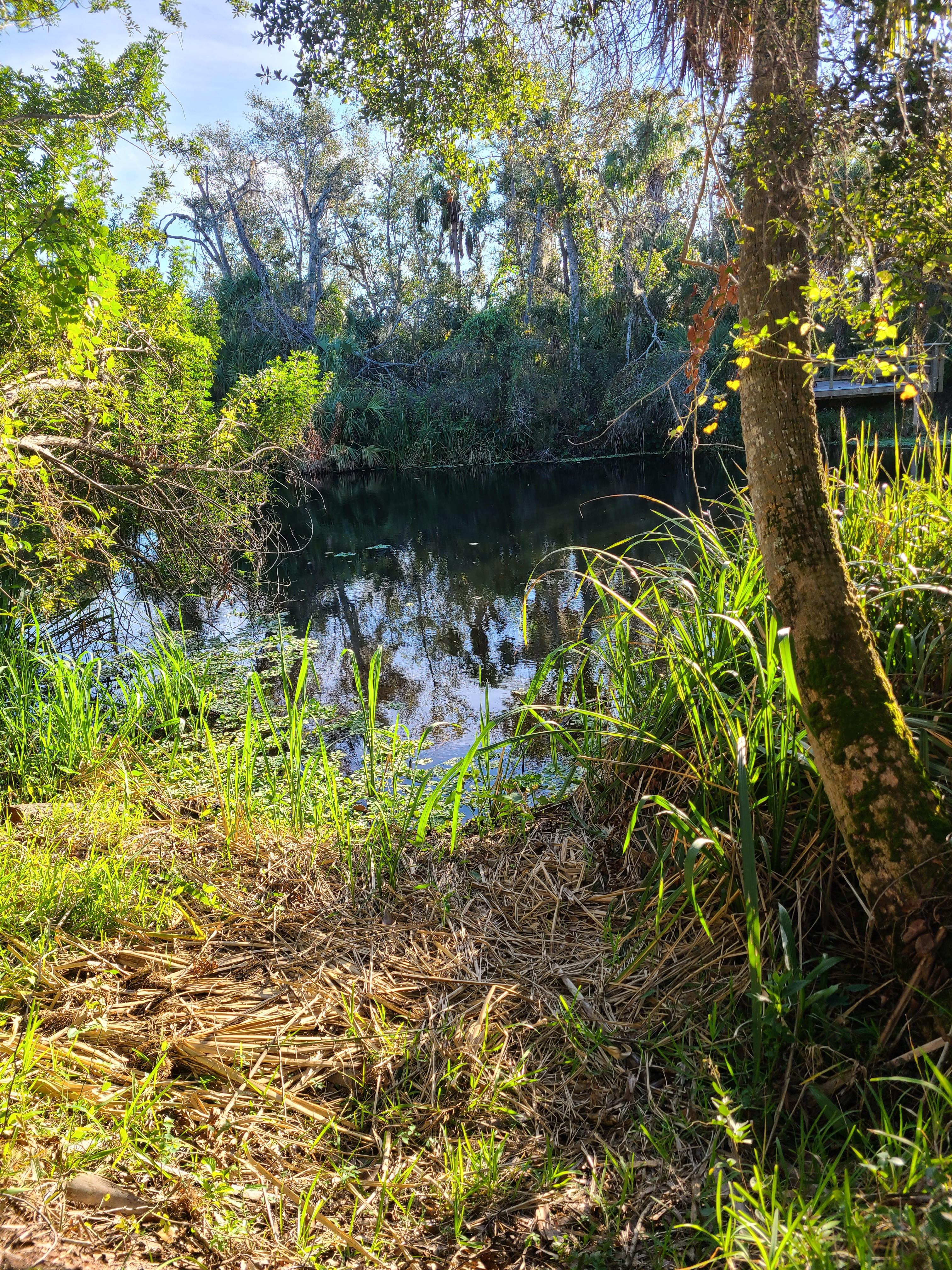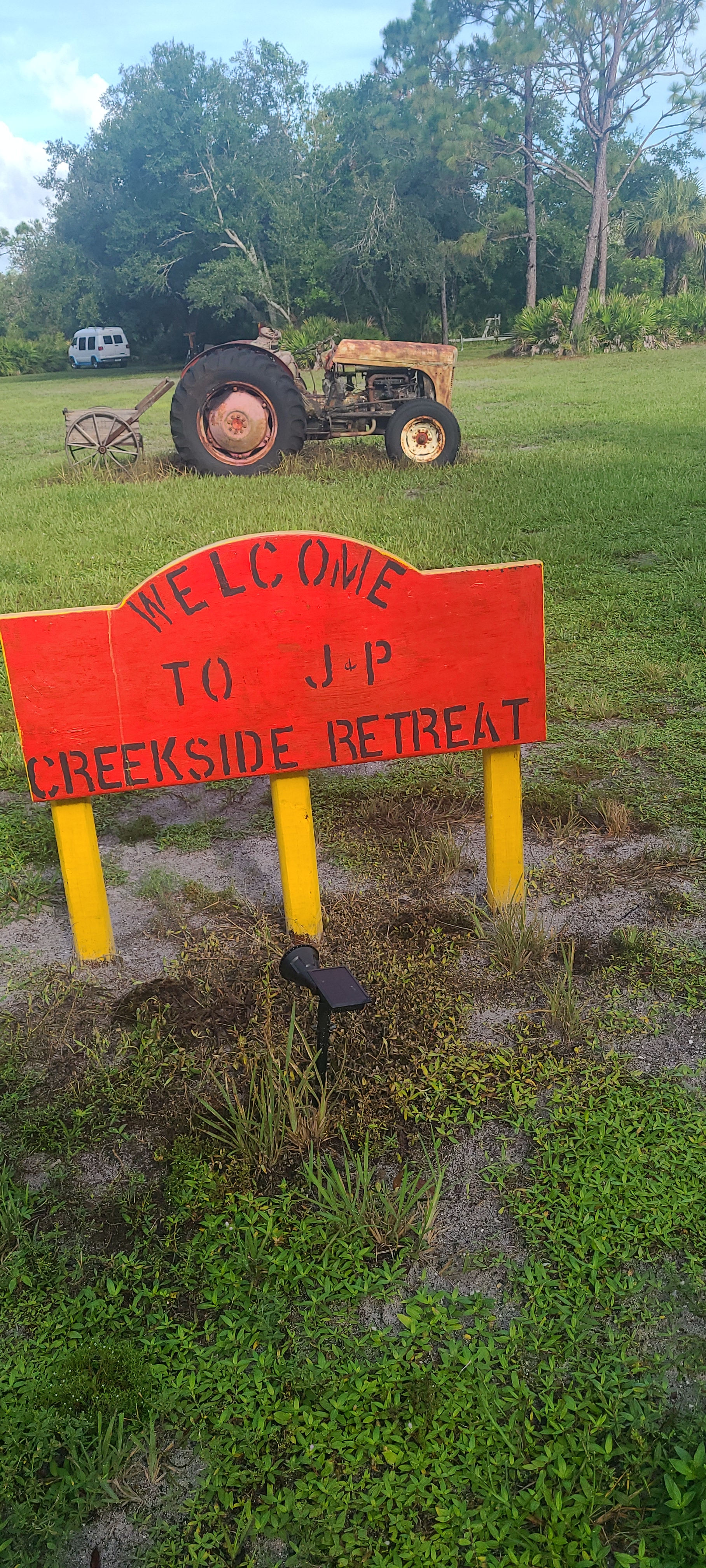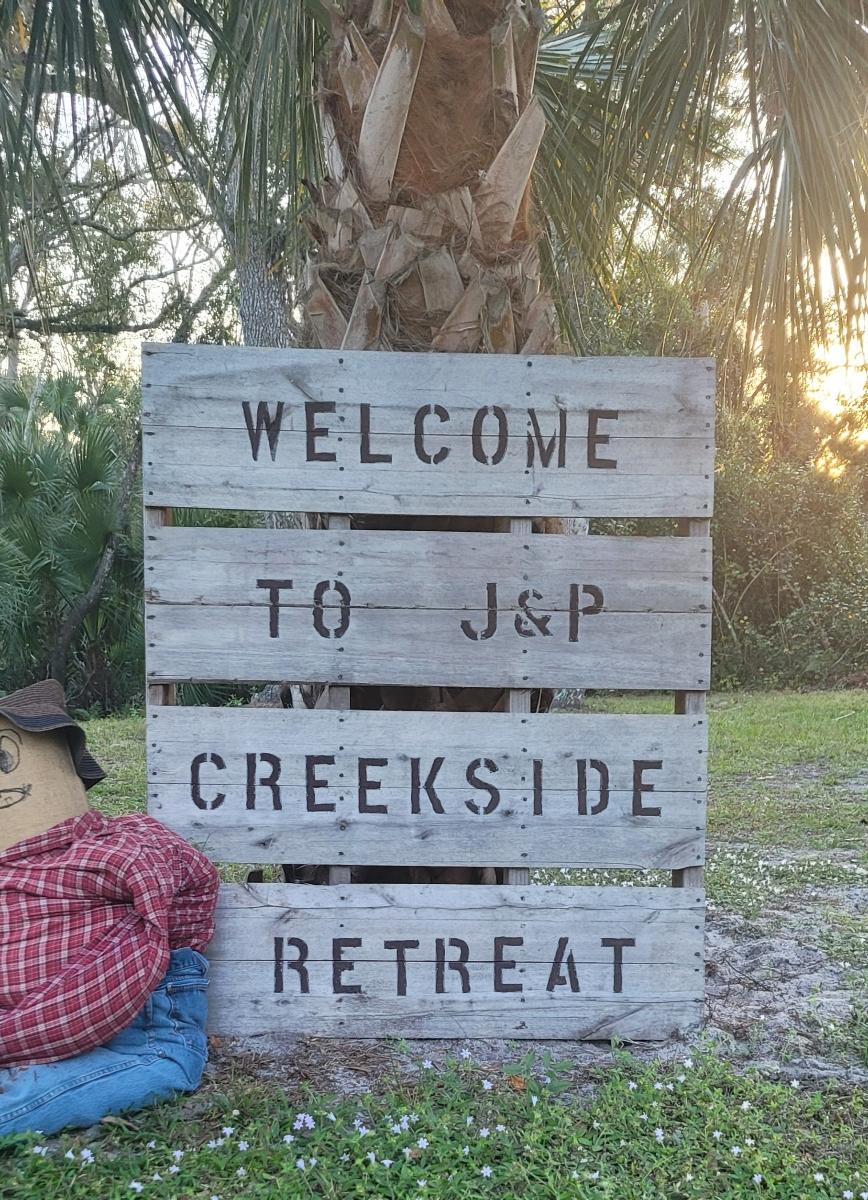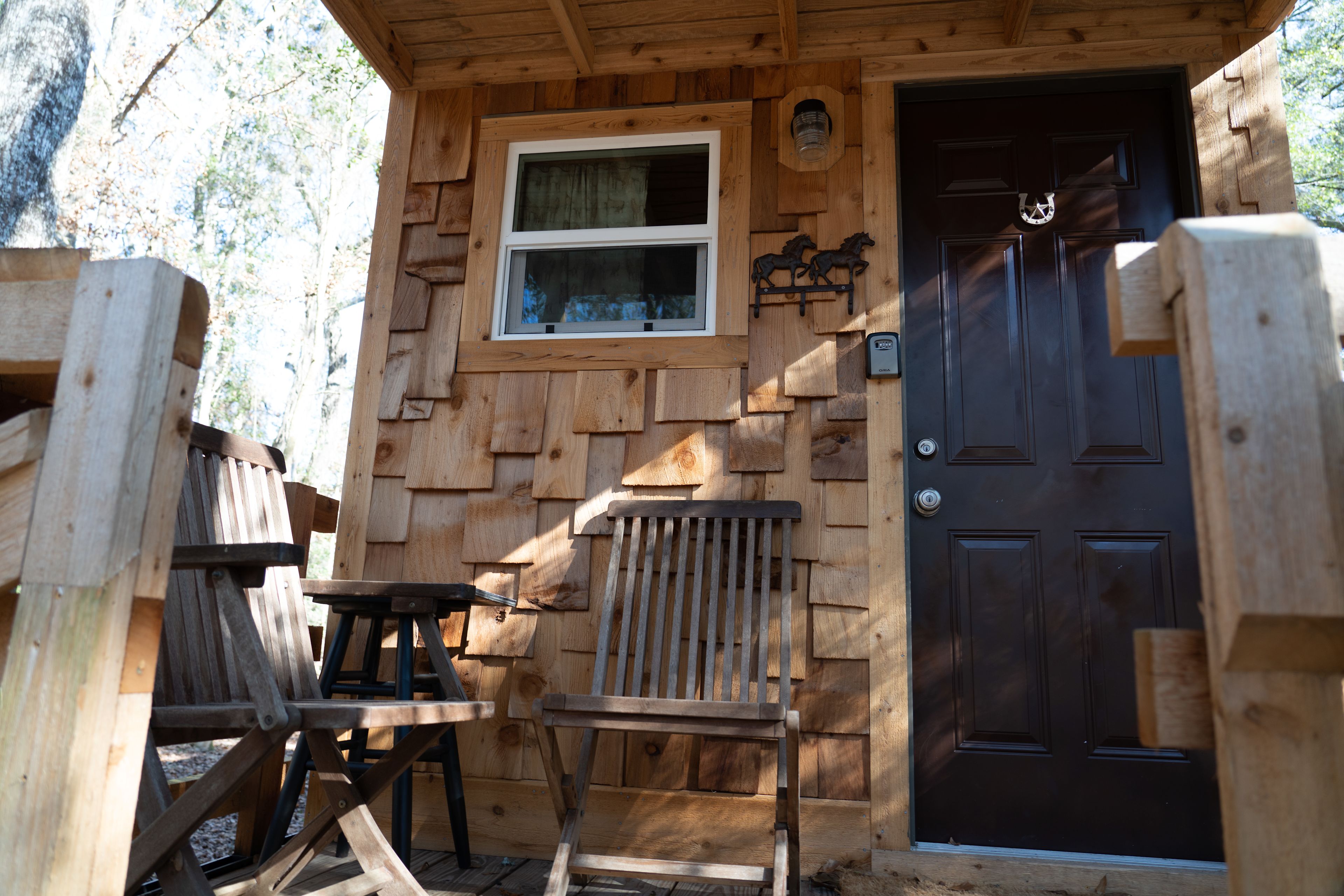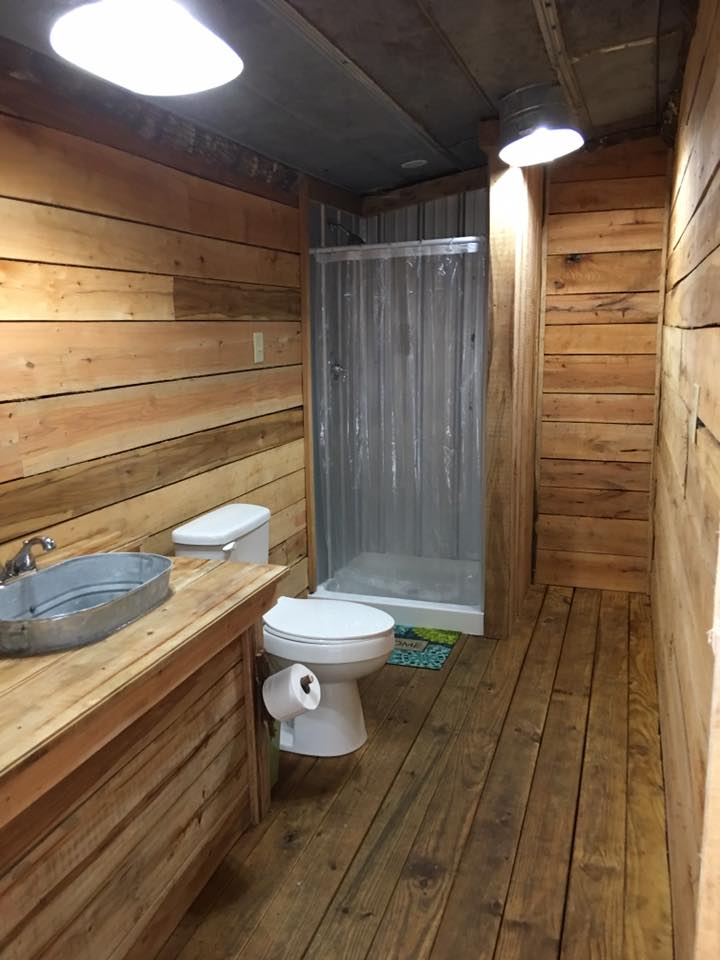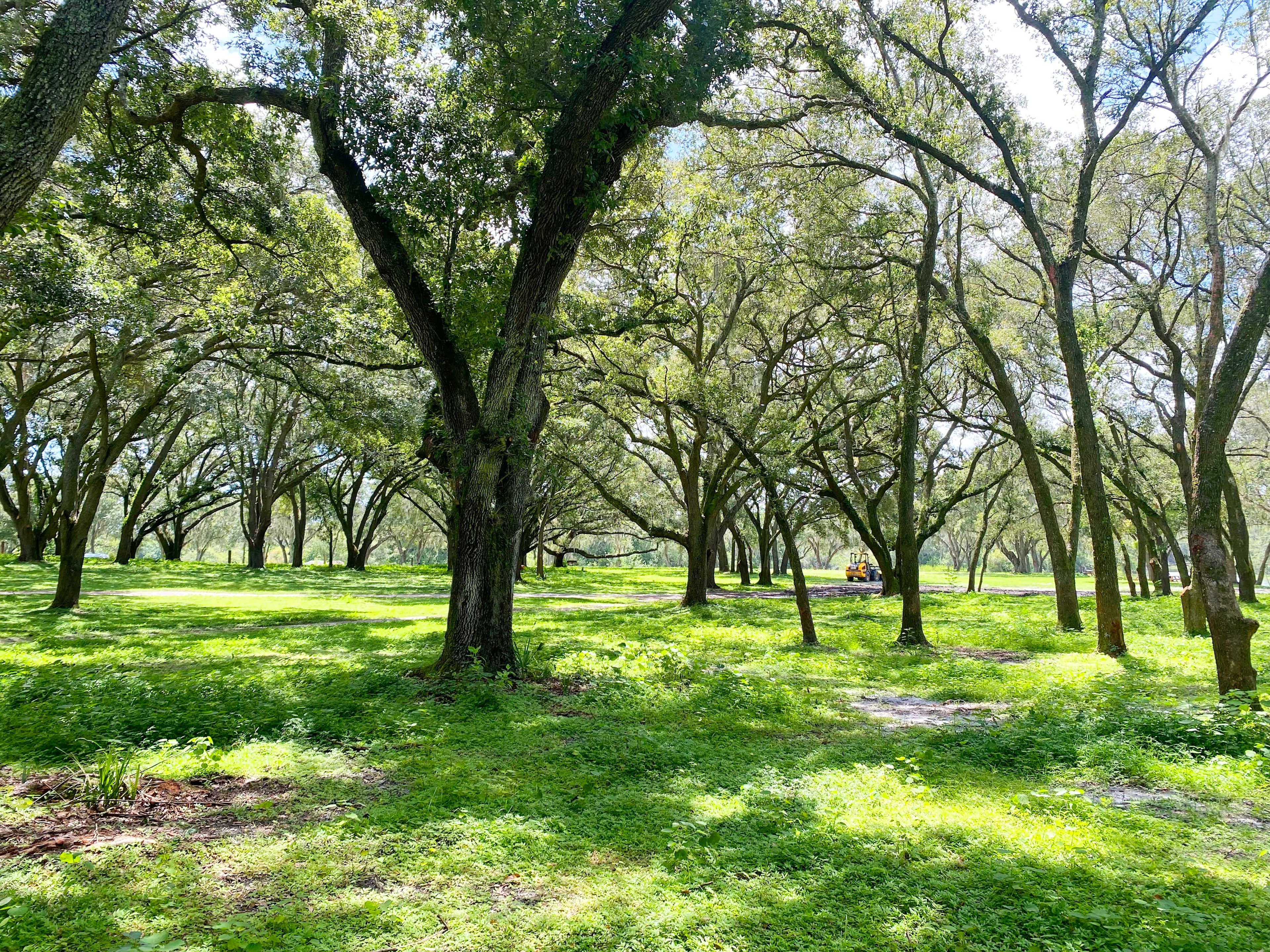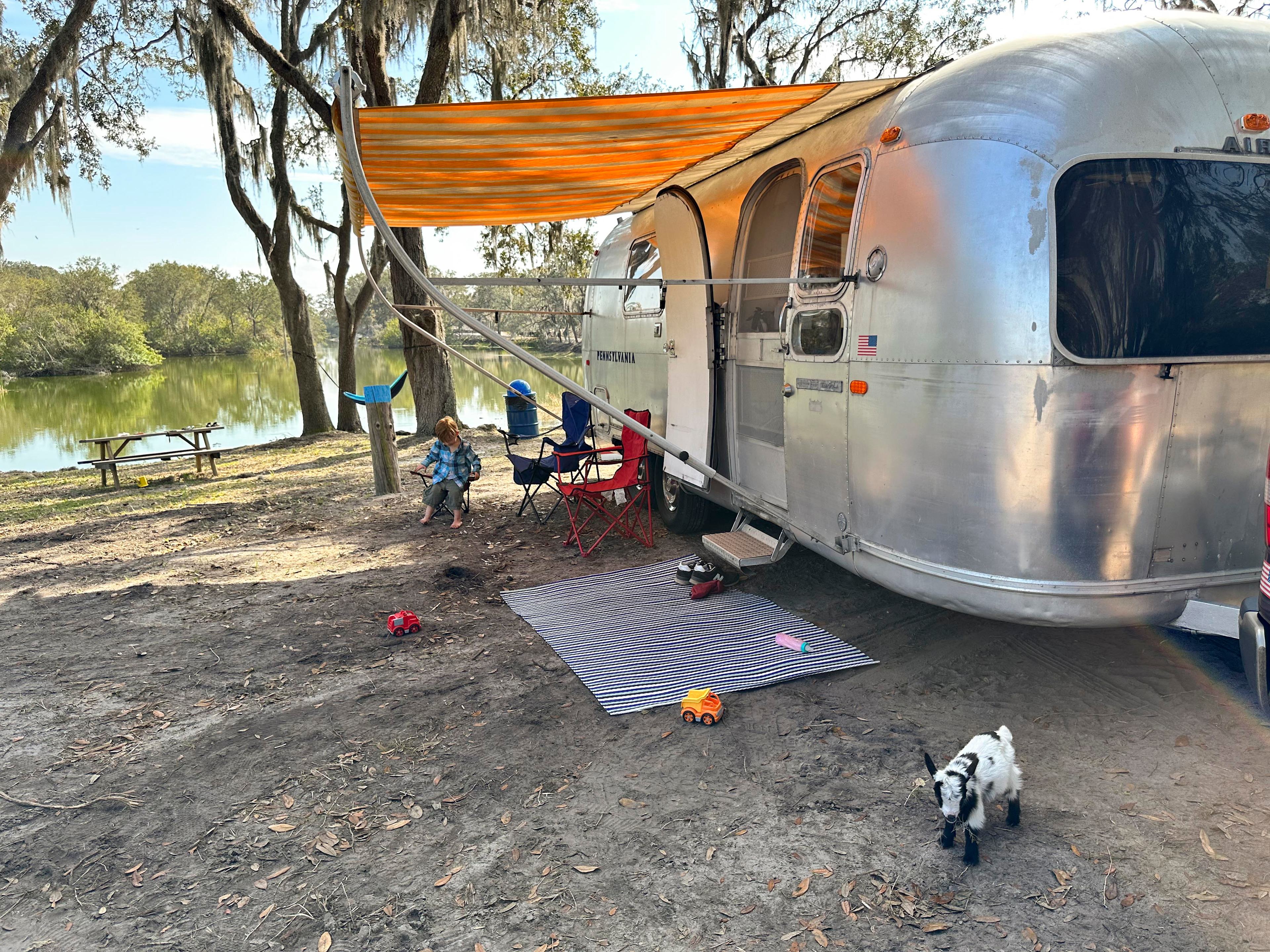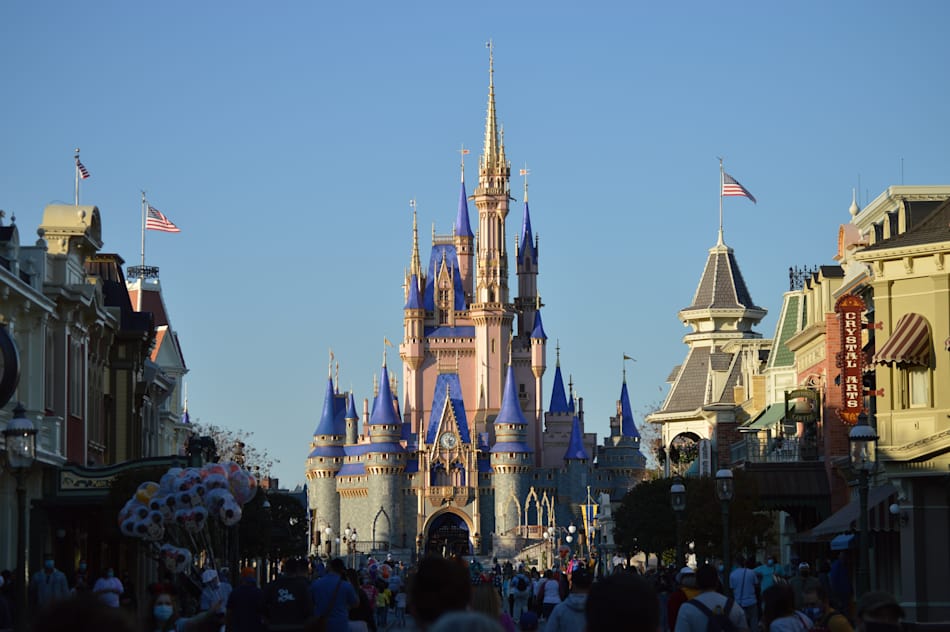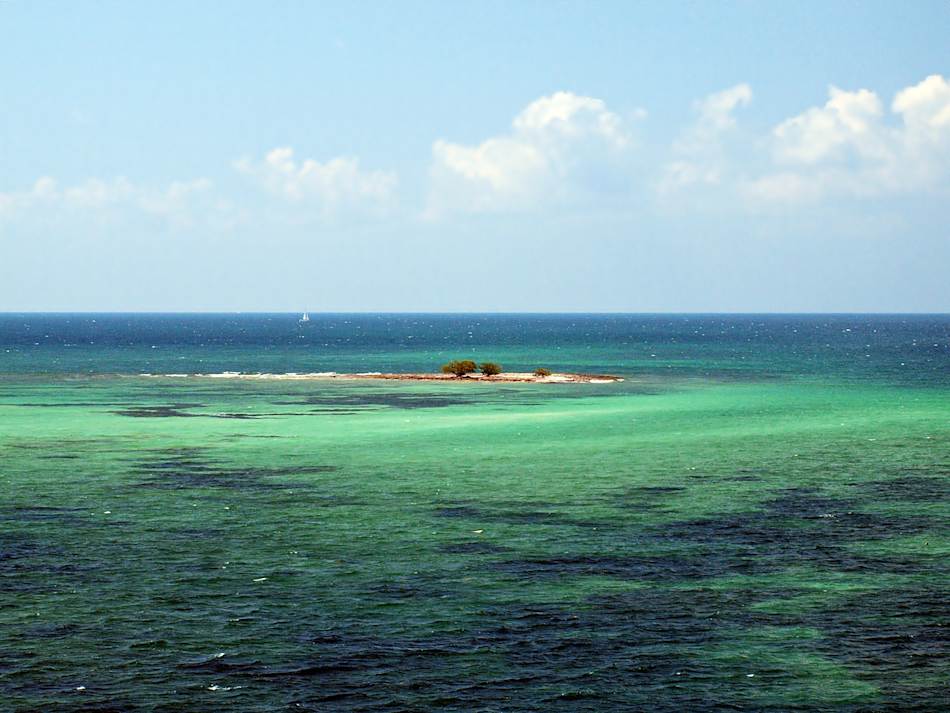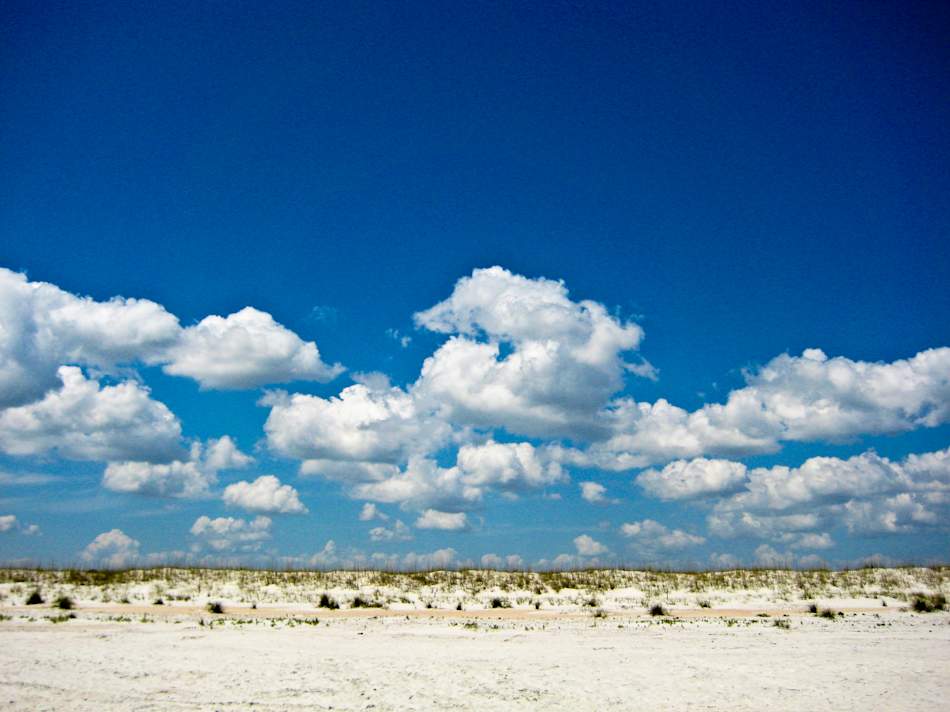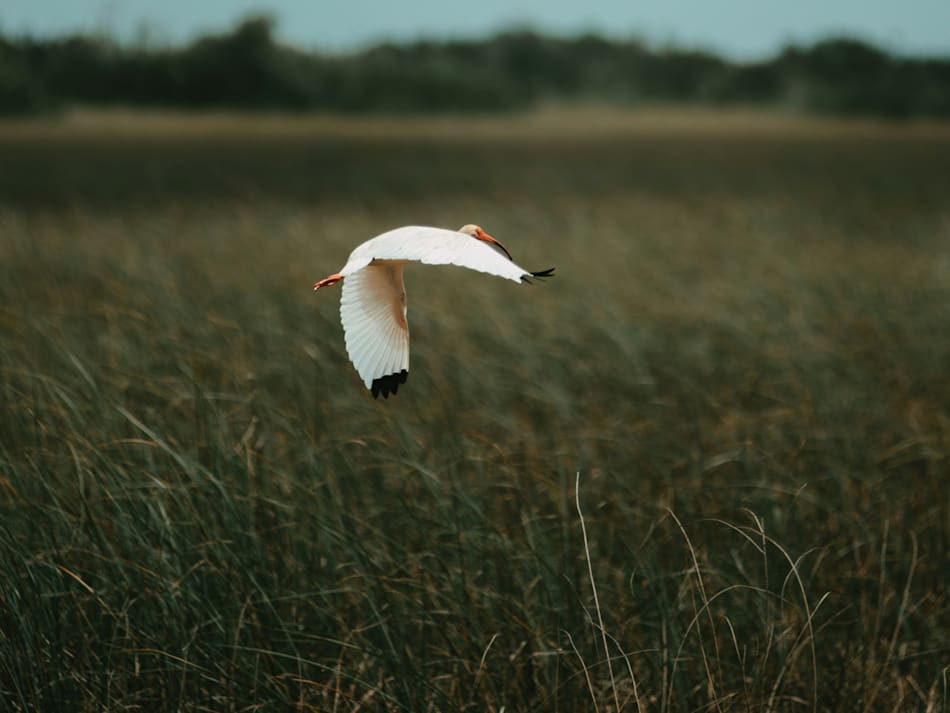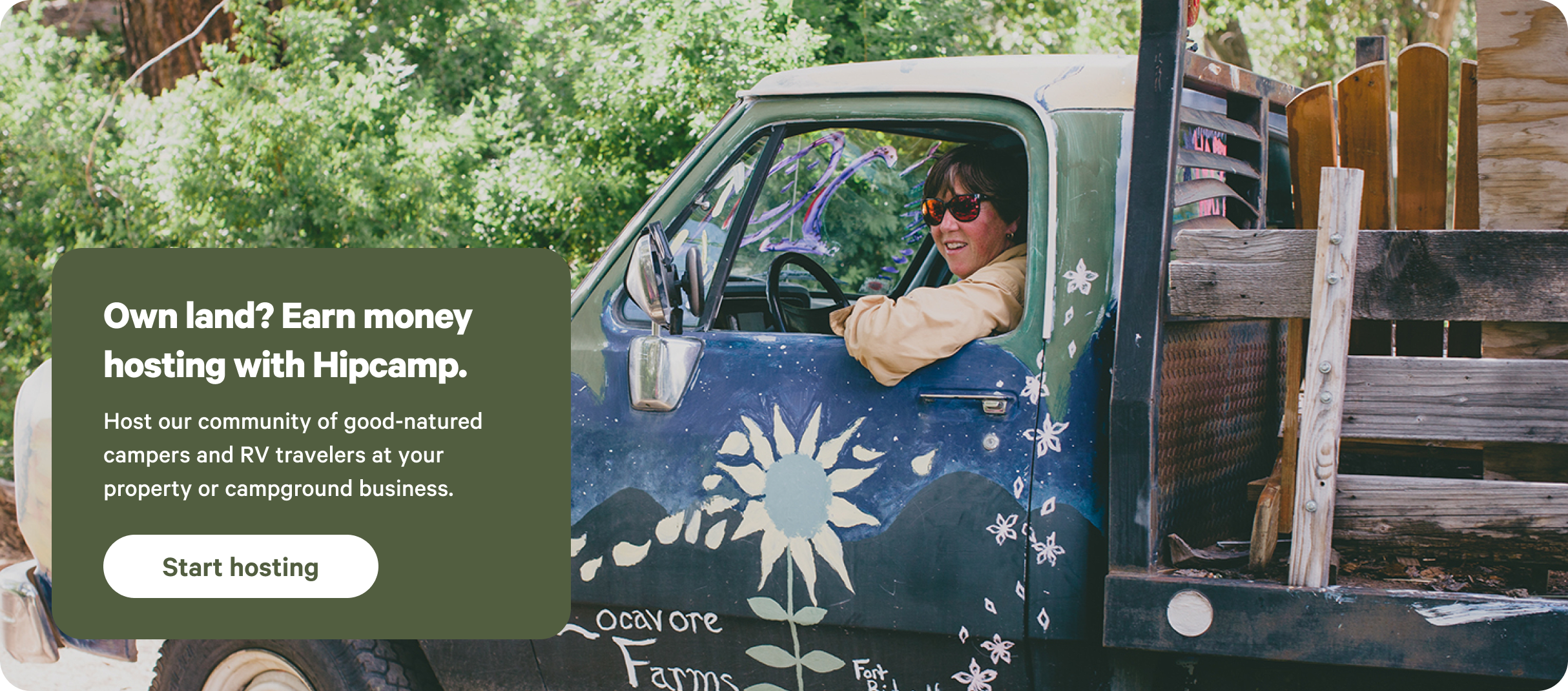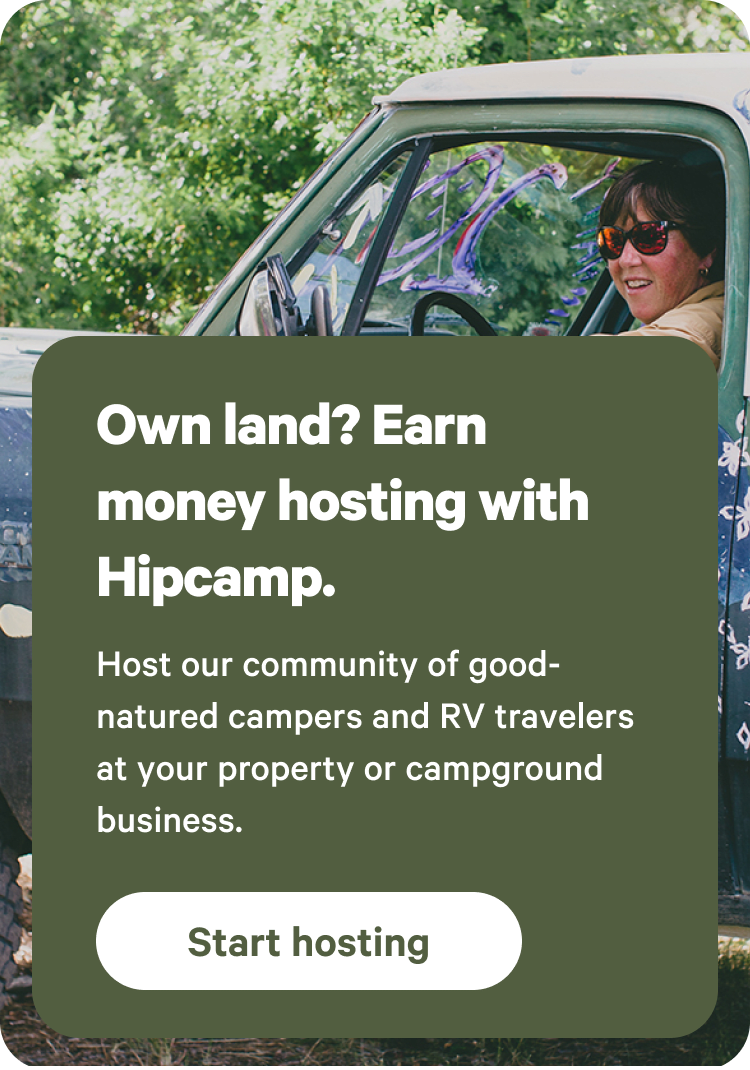Top-rated campgrounds near Florida
Top-rated campgrounds near Florida
Recent reviews from the Hipcamp community
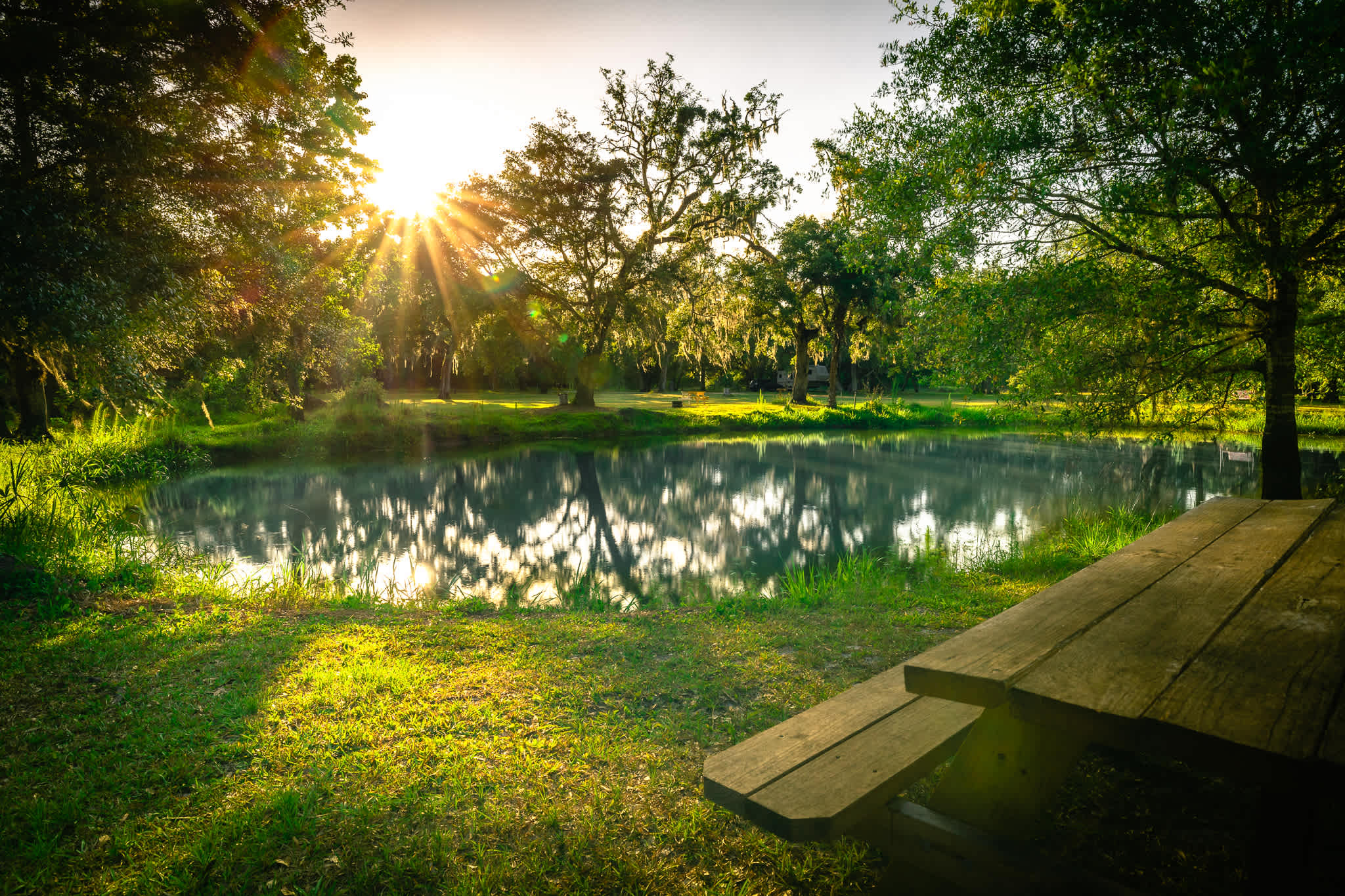
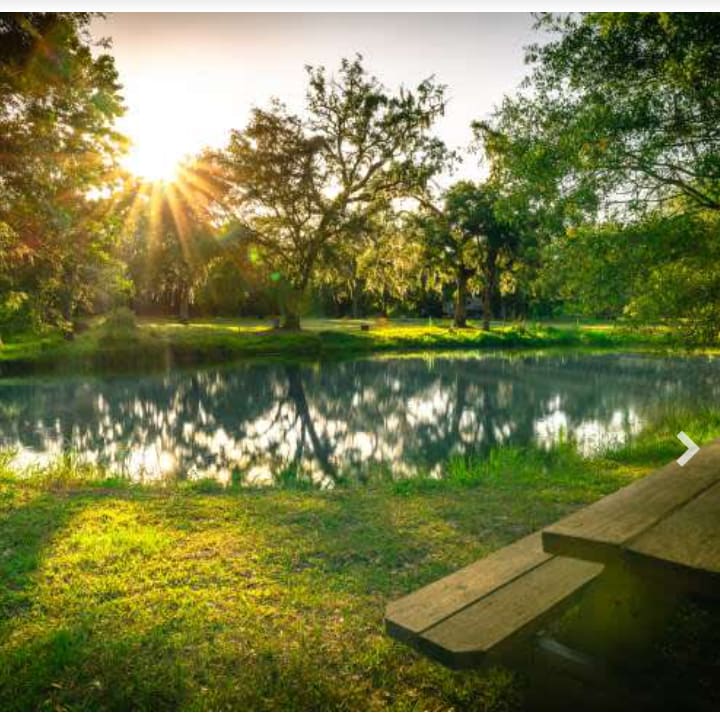
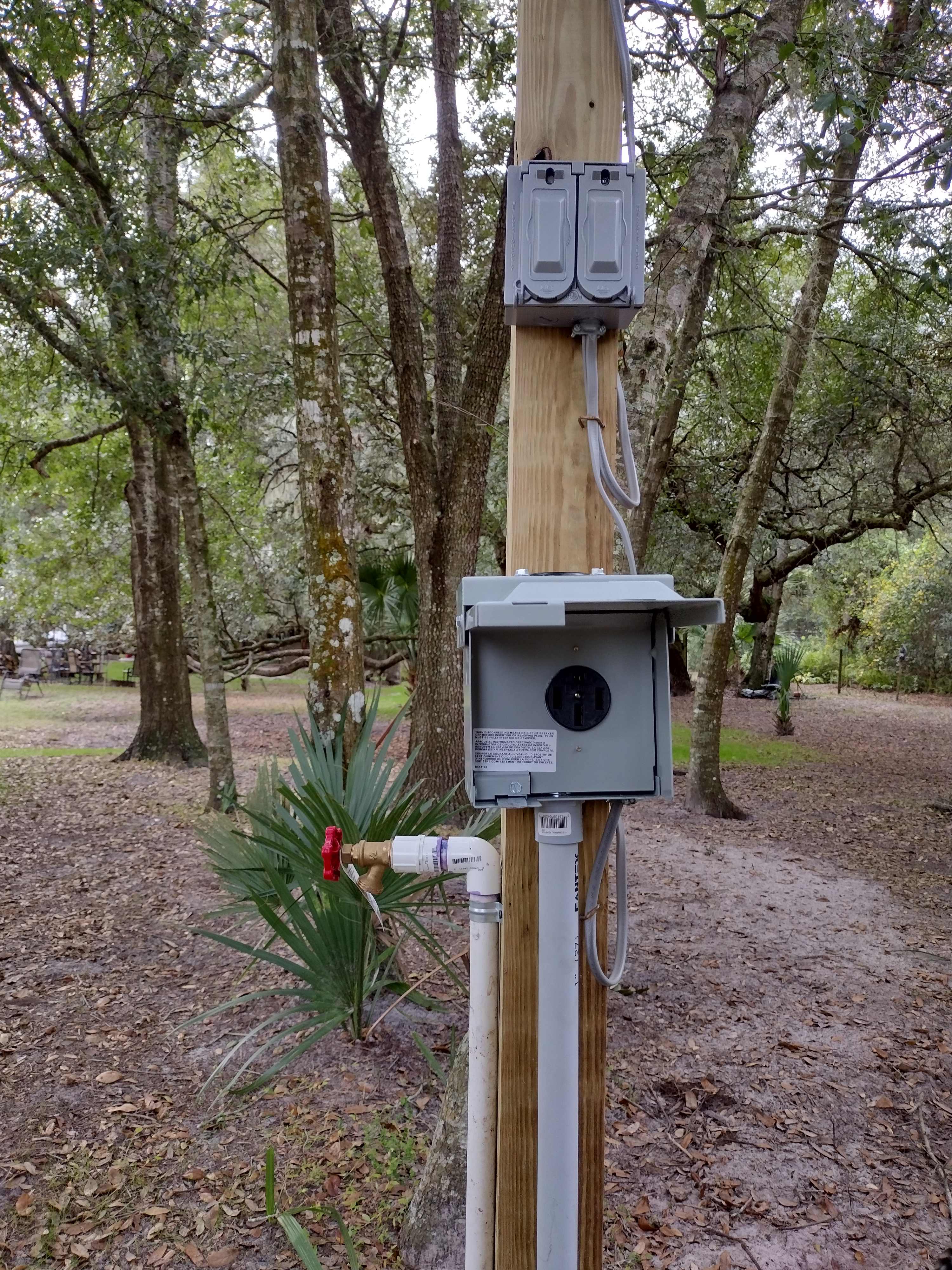
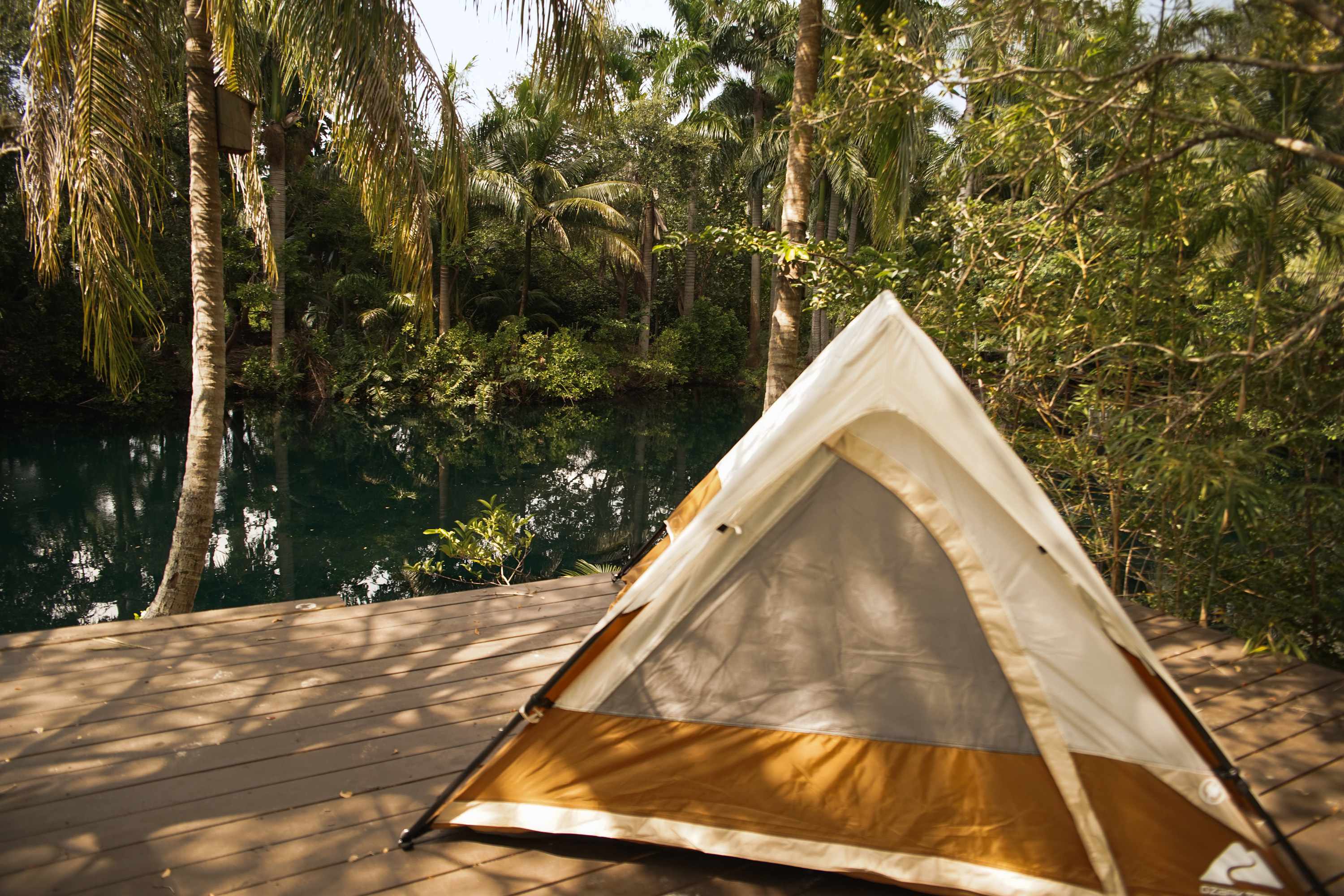
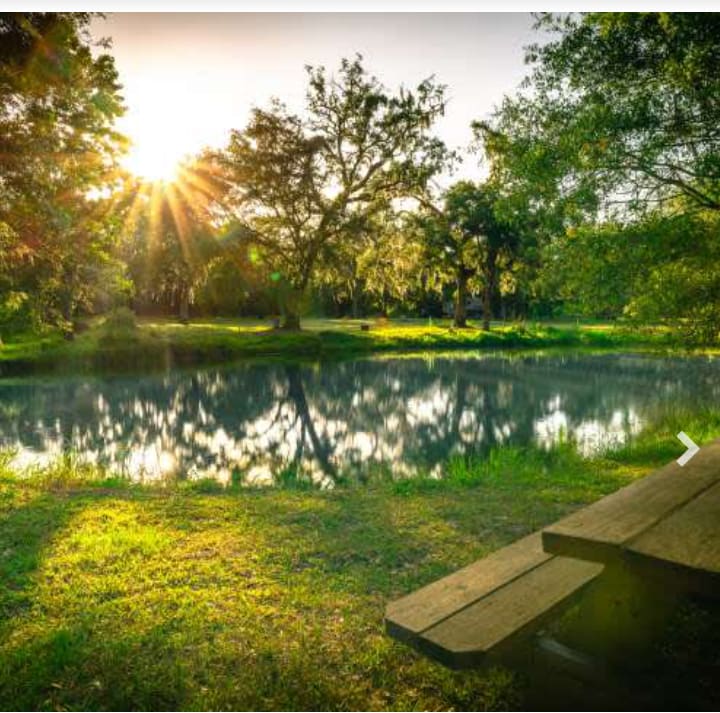
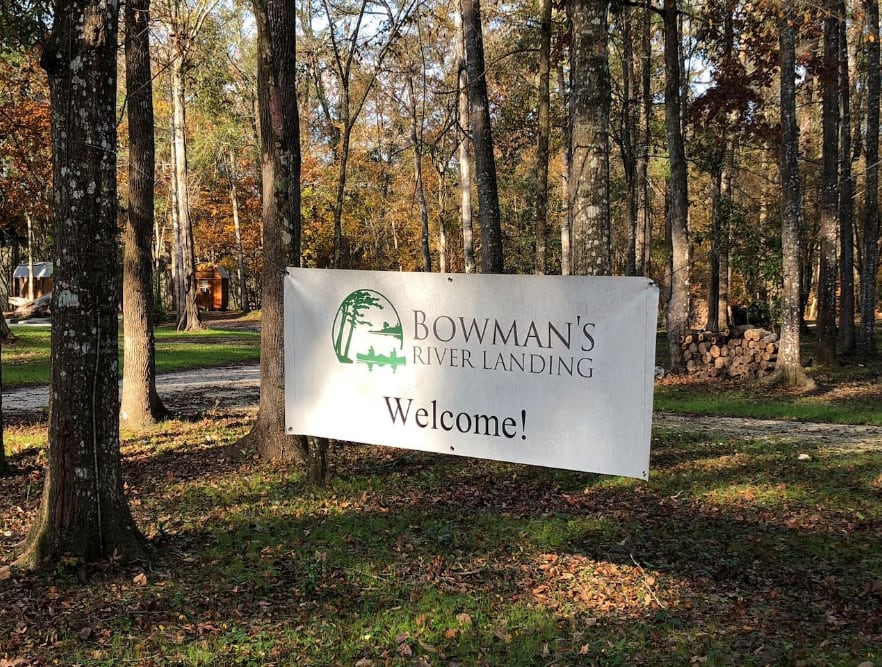
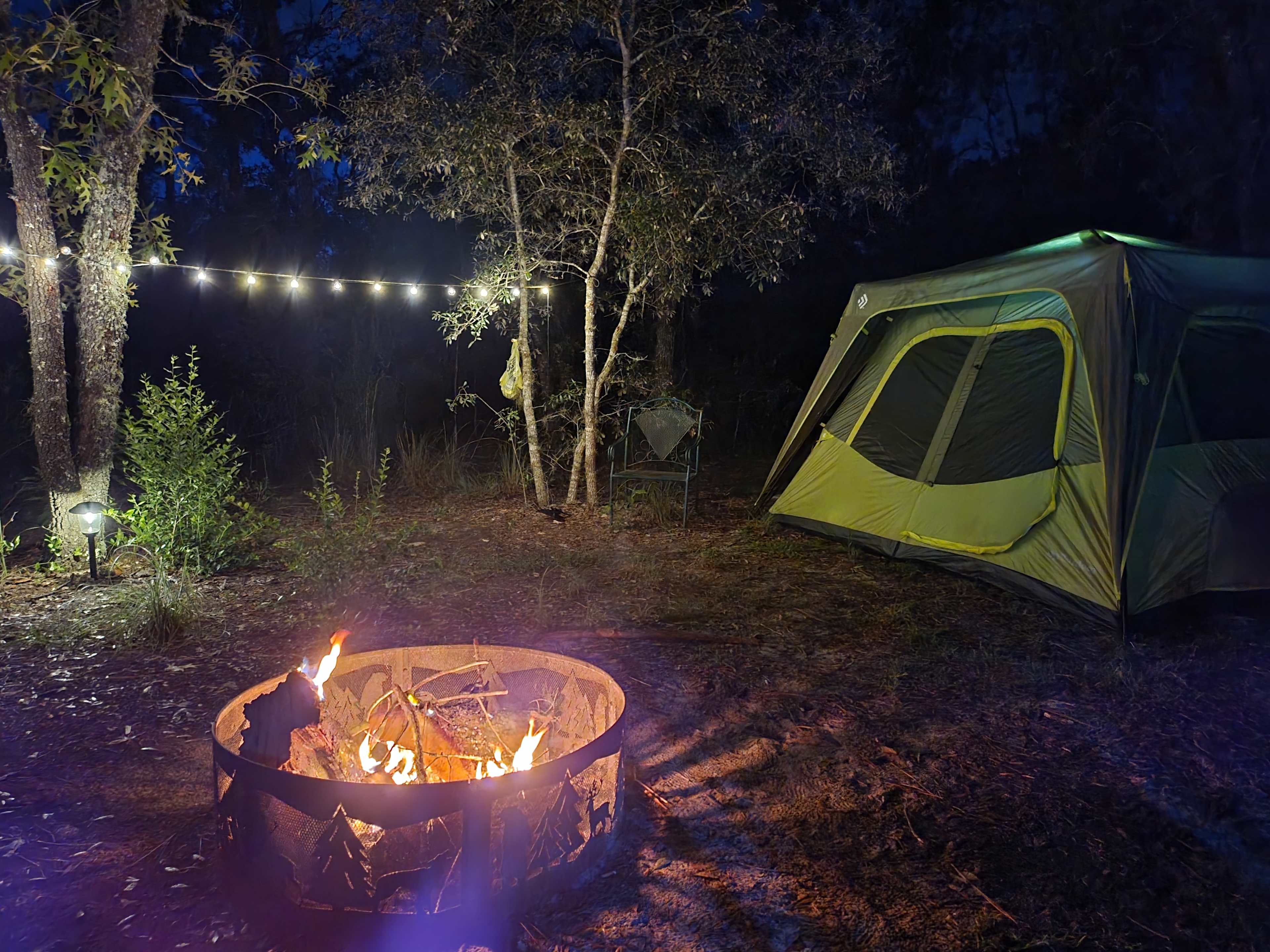

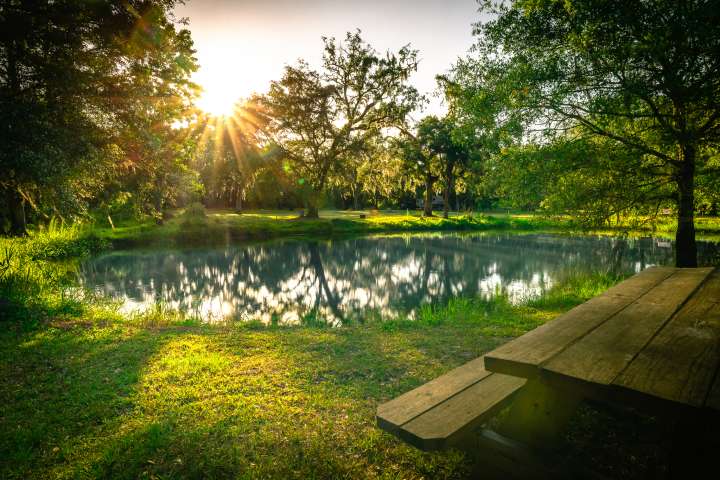
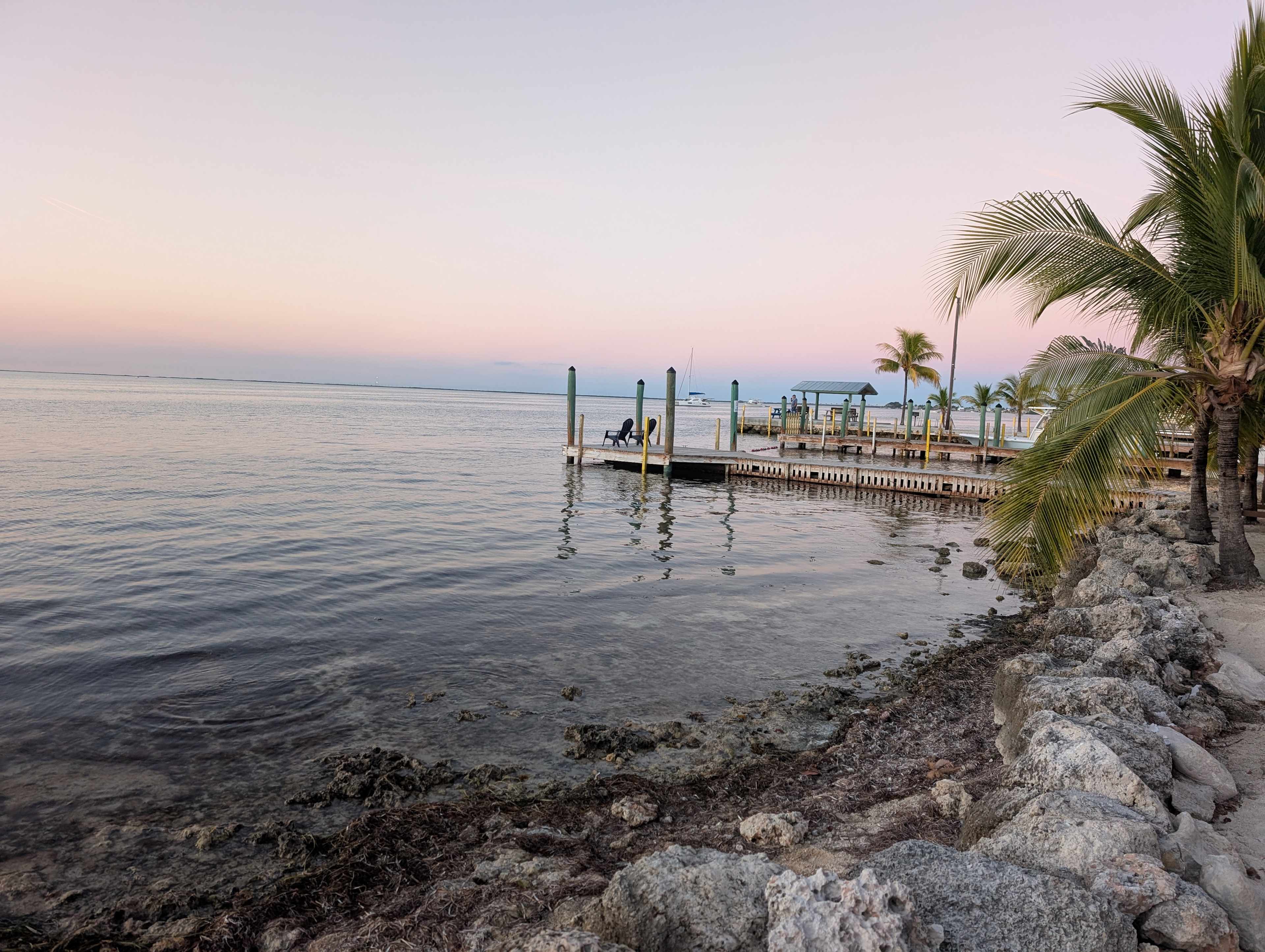
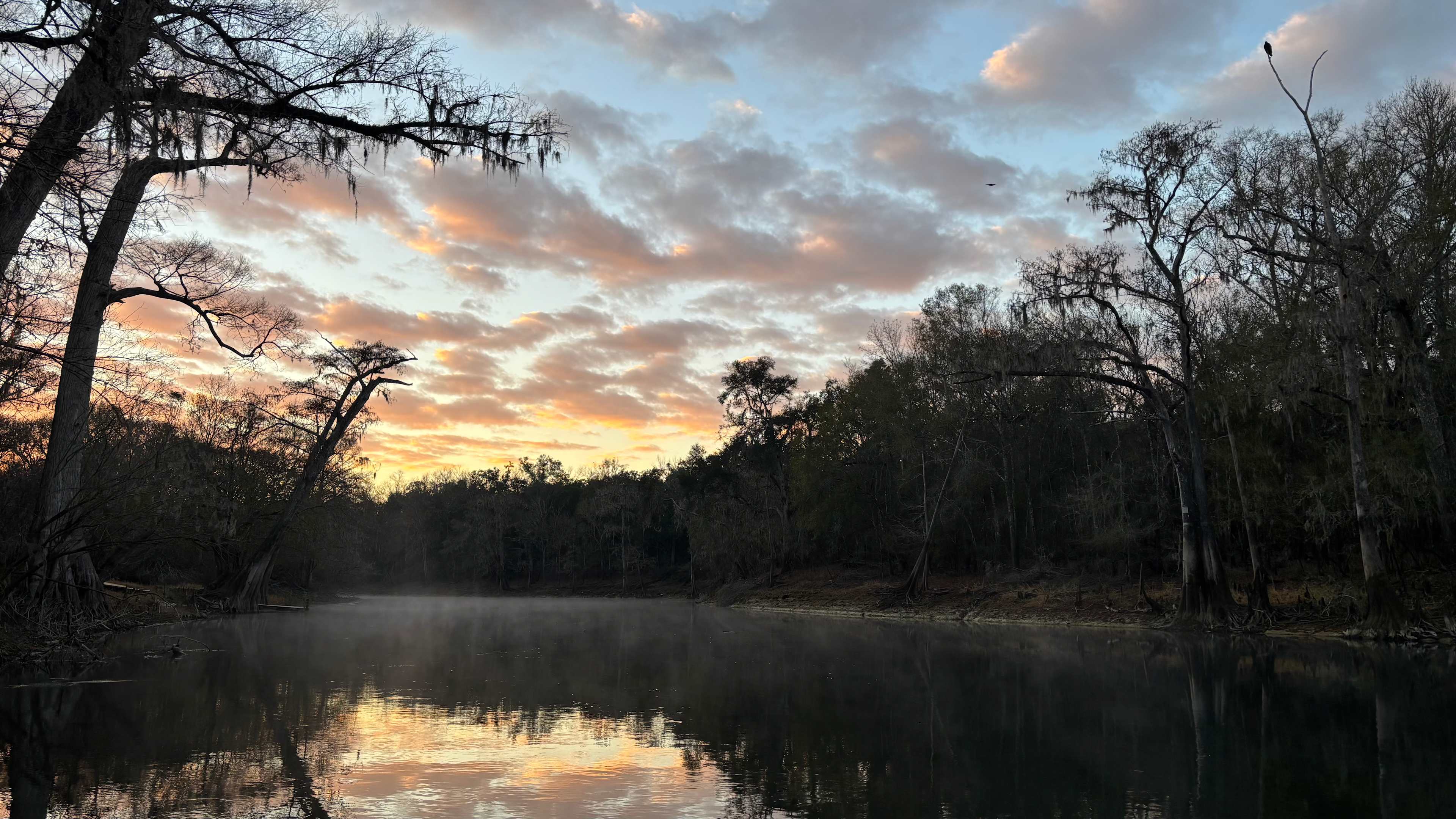
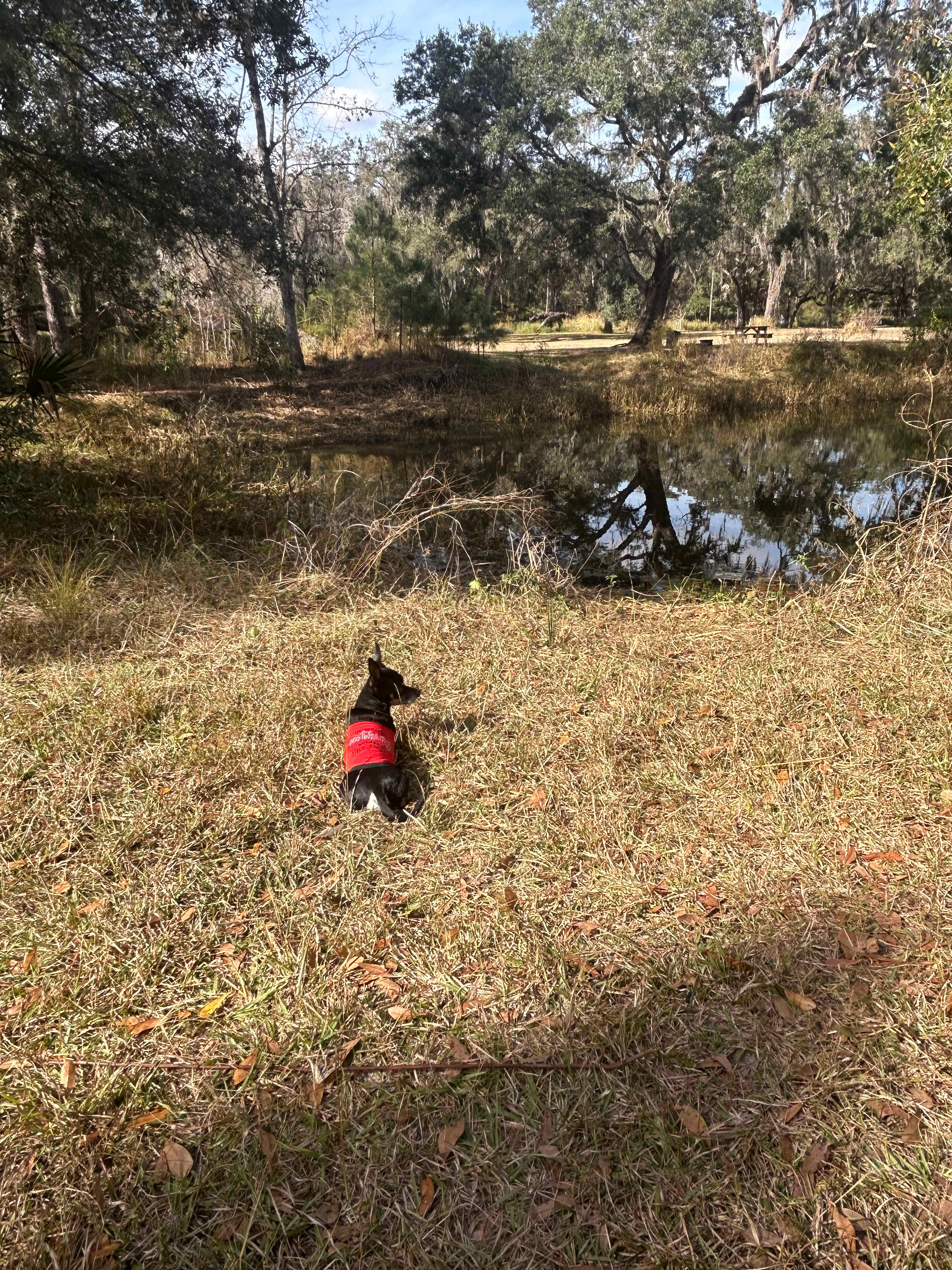
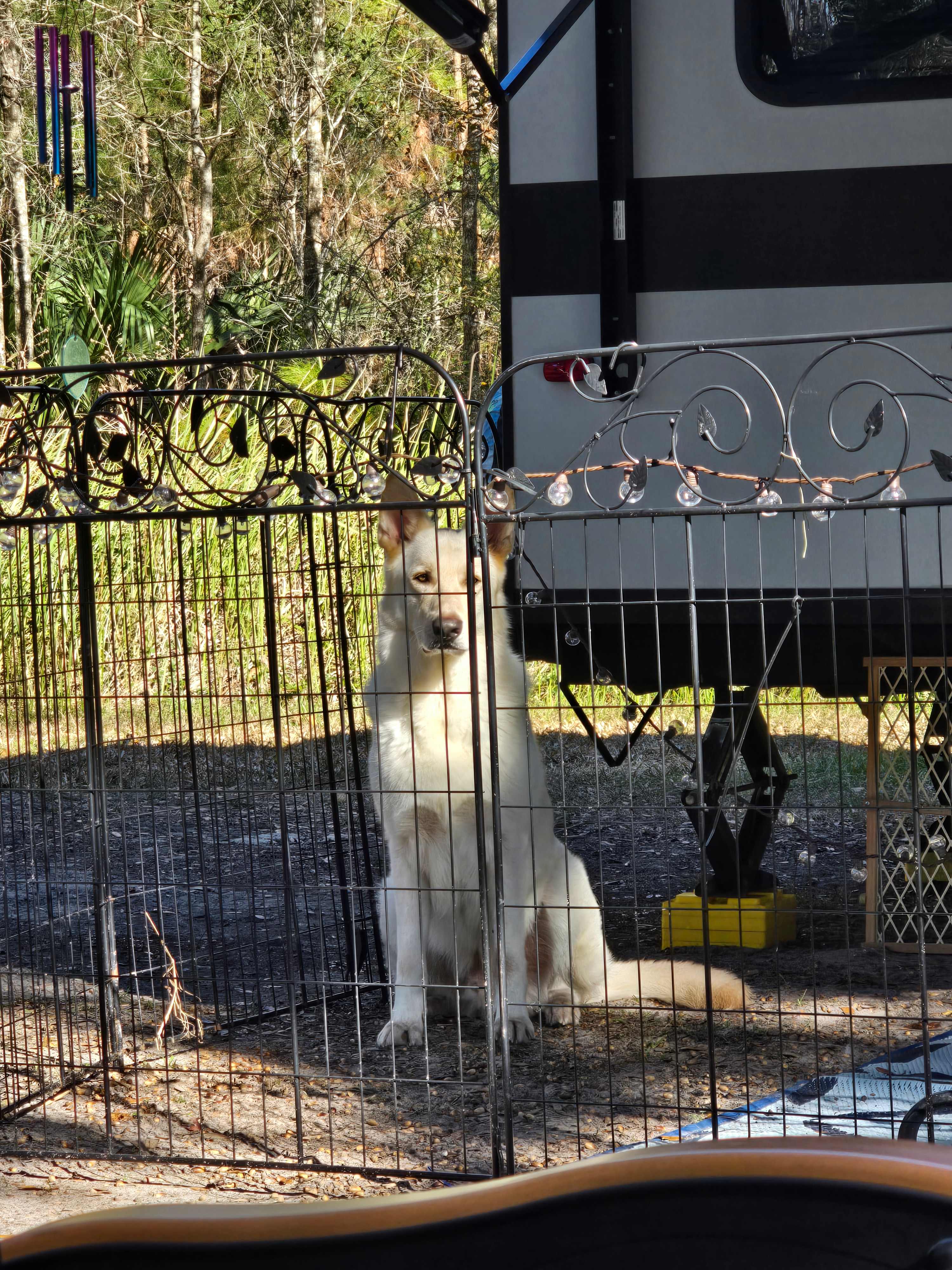

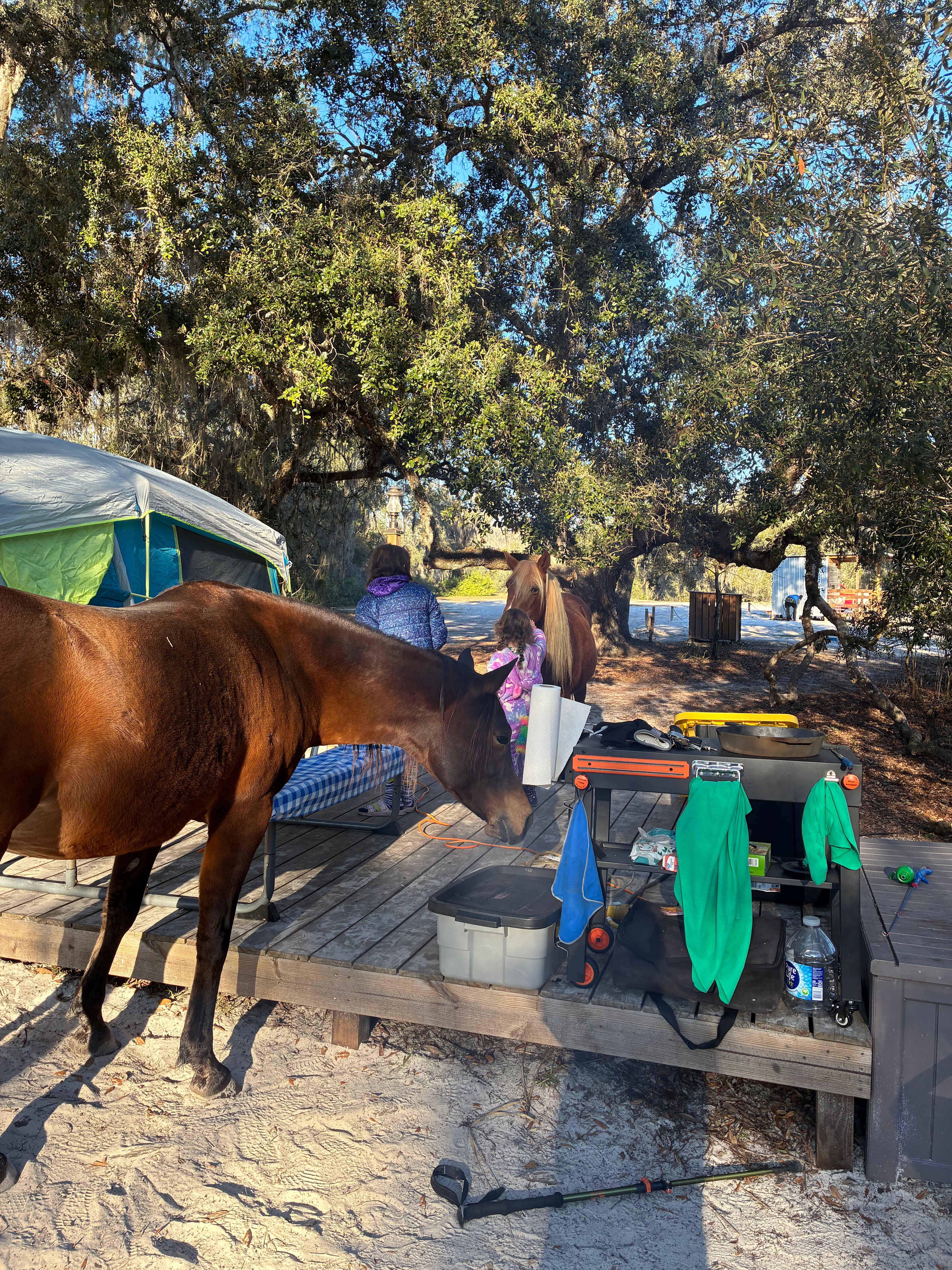
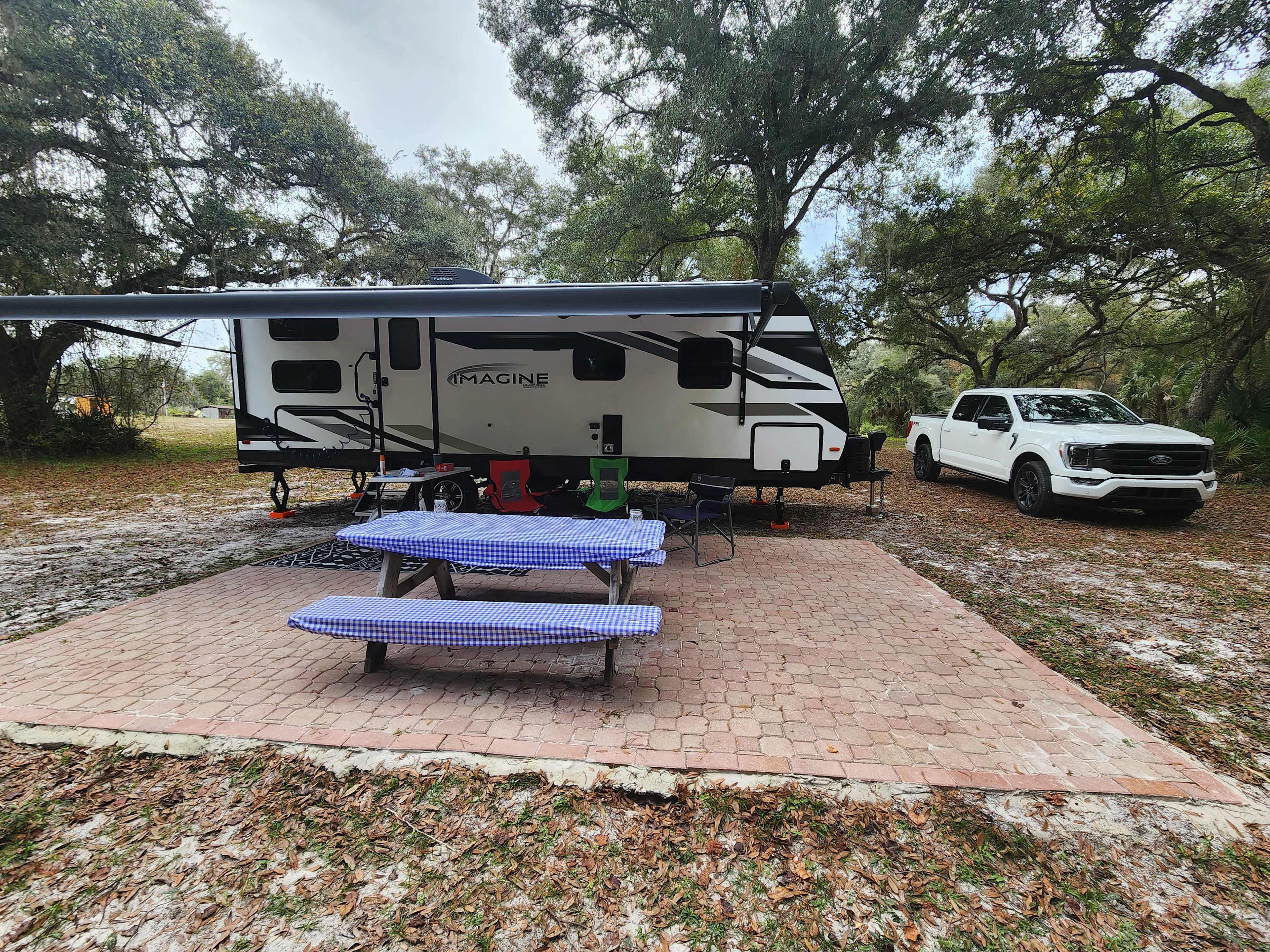

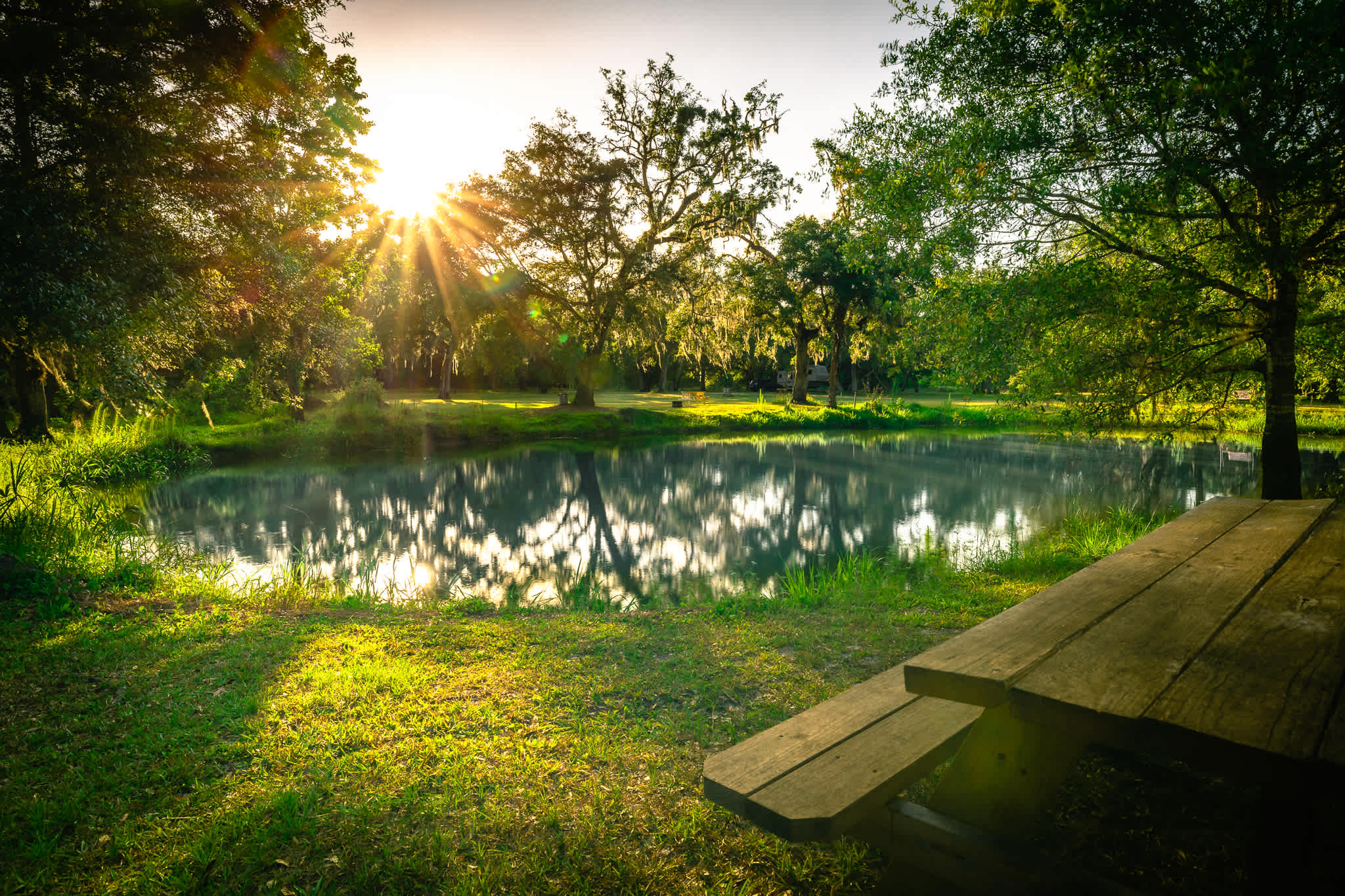
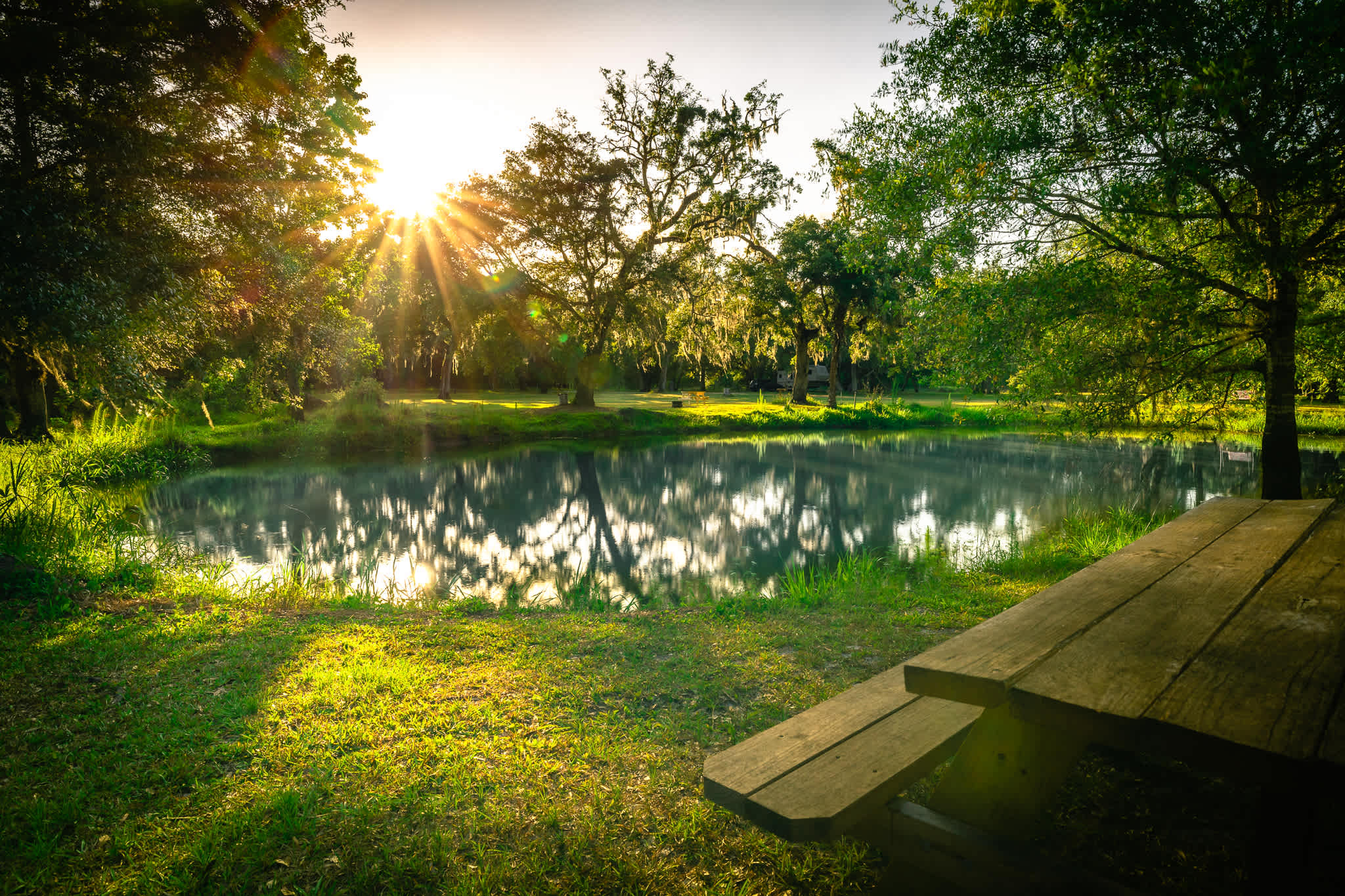

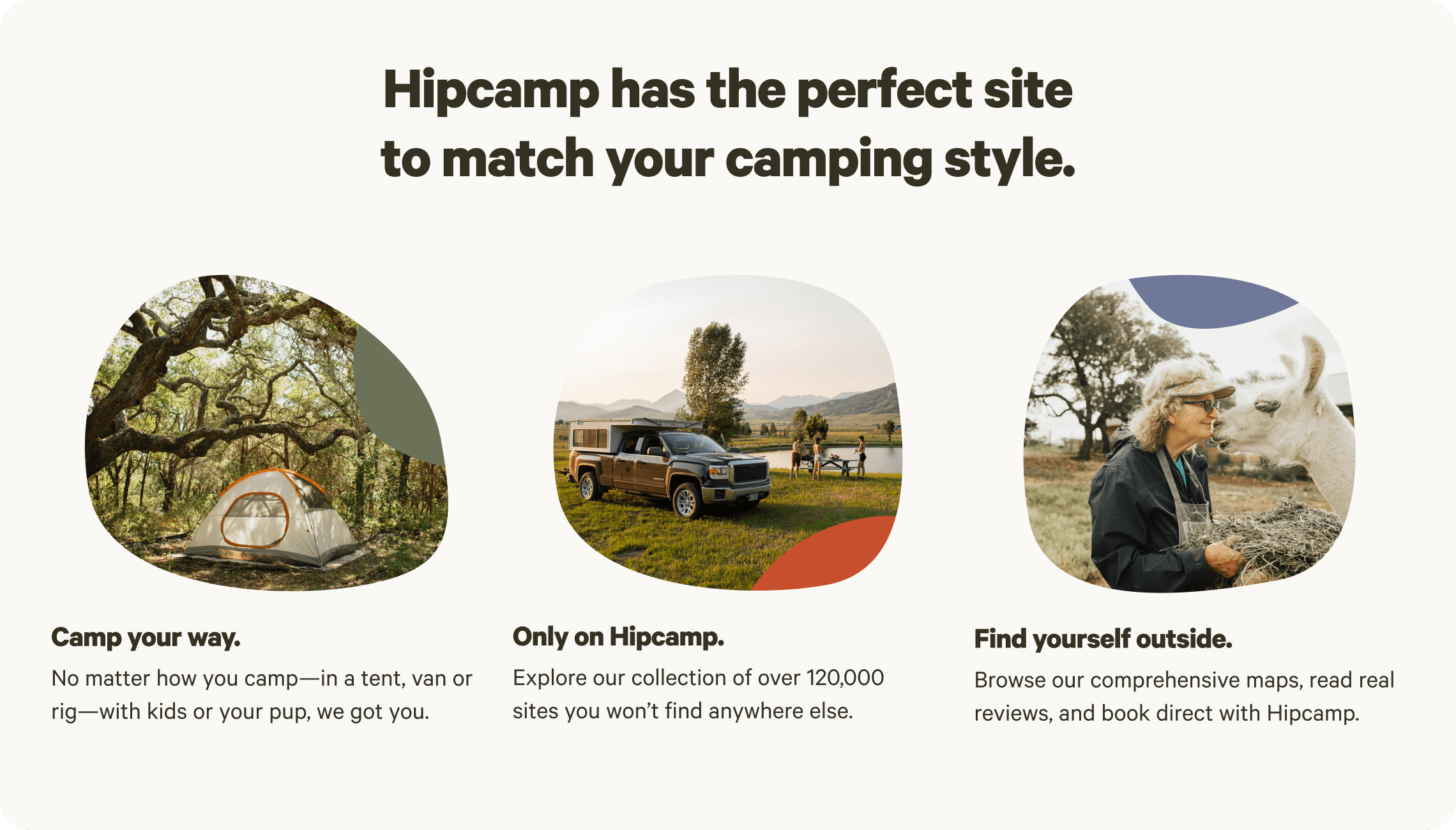

The best camping in Florida guide
Where to go
Panhandle and Big Bend
White-sand beaches and laid-back beach towns fringe the Gulf of Mexico in Florida’s north-western county. Panama City, Destin, and Pensacola are gateways to the Panhandle, where you can pitch your tent right on the beach along the Gulf Islands National Seashore or check into an RV resort at one of the seaside state parks. The Apalachicola National Forest, just outside Tallahassee, is another favorite for campers, with everything from primitive tent sites to RV sites with electric hookups.
North Florida
Most visitors to North Florida make a beeline for the Atlantic Ocean, where the hubs of Jacksonville, St Augustine, and Daytona Beach are dotted with sandy beaches and historic monuments. Campers looking to escape the beaten track can enjoy backcountry camping along the Canaveral National Seashore or park up by the beach in Anastasia State Park. Inland, the sprawling Lakelands of the Ocala National Forest are camping nirvana, surrounded by state parks and natural springs.
Central Florida
Fun-seeking families probably have Orlando’s theme parks at the top of their Central Florida to-do list, but there are plenty of ways to get back to nature too. There’s great hiking and primitive camping in Seminole State Forest and Kissimmee State Park, both just outside the city. Other popular camping spots include the Jonathan Dickinson State Park in West Palm Beach, Lake Okeechobee, and Cayo Costa State Park, just off the coast of Fort Myers.
South Florida
The vast Everglades National Park is the star attraction of the Gulf Coast, where boating, biking, and canoeing tours will take you through the UNESCO-listed wetlands. Look out for manatees and American alligators along the way. Over on the Atlantic Coast, the buzzing beach resorts of Miami and Fort Lauderdale draw sun-seekers year-round. Intrepid campers can escape the masses in the Biscayne National Park, where the tent camping sites are reachable only by boat or kayak.
Florida Keys
If kayaking around tropical islands, and snorkeling and scuba diving along remote coral cays sounds like your idea of fun, look no further than the Florida Keys. The Overseas Highway runs all the way to Key West, and campers will find RV sites and tent camping grounds peppered around the many islands. Campgrounds in Bahia Honda State Park have boat launches and hammock camping, while the remote Dry Tortugas National Park has backcountry camping far from the crowds.
Frequently Asked Questions About Camping in Florida
Can you camp on the beach in Florida?
Yes, you can go beach camping in Florida in certain areas, typically on some BLM land and in dozens of state parks including Bahia Honda State Park in the Florida Keys, Grayton Beach State Park outside Destin, and eastern Florida’s Sebastian Inlet State Park. Campers in Florida are generally not allowed to camp in the sand unless expressly stated otherwise in the areas above. Most Florida beach campgrounds are set behind sand dunes with picnic tables, electric hookups, and toilet access. Remote, primitive, boat-in beach campsites can also be found on Elliott Key and Boca Chita Key in Biscayne National Park. Find more beach camping in Florida.
Is primitive camping allowed in Florida?
Yes, primitive camping is allowed in Florida in some state parks, national forests, state forests, and on the US Forest Service’s Florida Trail, usually for a small fee. Primitive camping, typically described as dispersed camping away from designated campgrounds without facilities, is available for backpackers and campers at more than 25 Florida state parks, including Cayo Costa State Park near Fort Myers, Wekiwa Springs State Park outside Orlando, and Jonathan Dickinson State Park near West Palm Beach. BLM land does not exist in Florida, though you can find more private, secluded camping in Florida with Hipcamp.
Where can you camp for free in Florida?
You can find free camping in Florida in its national forests: Apalachicola National Forest, Osceola National Forest, and Ocala National Forest, each of which spans thousands of acres and is made up of diverse landscapes. These campsites are generally primitive and dispersed with no facilities, so you’ll need to come prepared.
How many state parks in Florida have RV camping?
Florida has an incredible number of state parks (190 and counting!) and about 52 state parks offering RV campgrounds and campervan campsites. Myakka River State Park, Rainbow Springs State Park, Blue Springs State Park, and Silver Springs State Park are among Florida’s most popular state parks with RV camping. Find more Florida RV camping.
What is the best month to go camping in Florida?
The very best months to go camping in Florida are March and April, when the weather is best for tent camping and RV road trips with temperatures hovering between a low of 65°F and a high of 85°F. During these months, humidity is at its lowest, rain is unlikely, and ocean waters are warmest in south Florida’s Miami Beach and Key West. Hiking and backpacking are best suited for the cooler months of January and February. August, September, and October are the worst months to go camping in Florida thanks to wet weather, high humidity, and potential thunderstorms or hurricanes.
